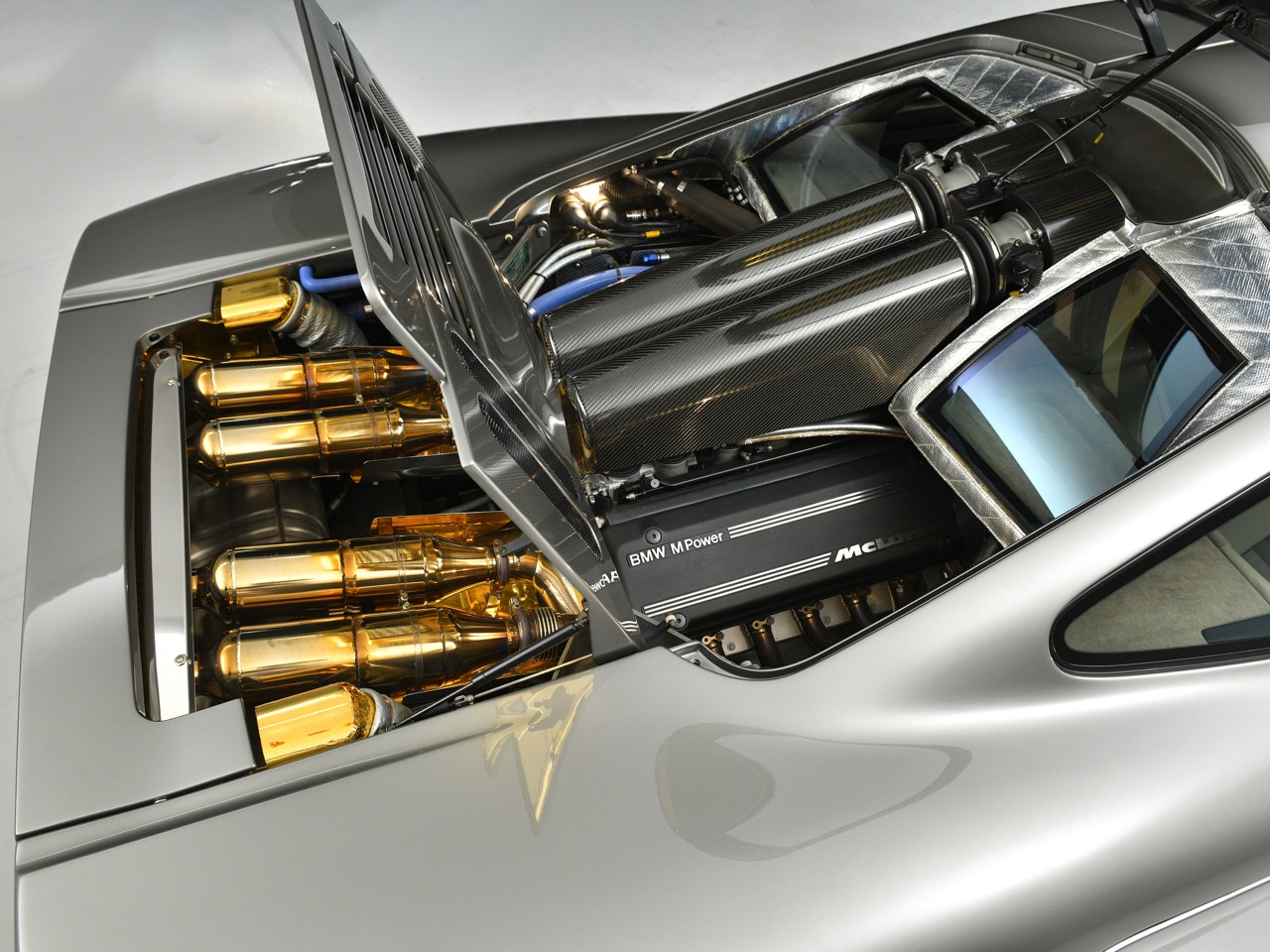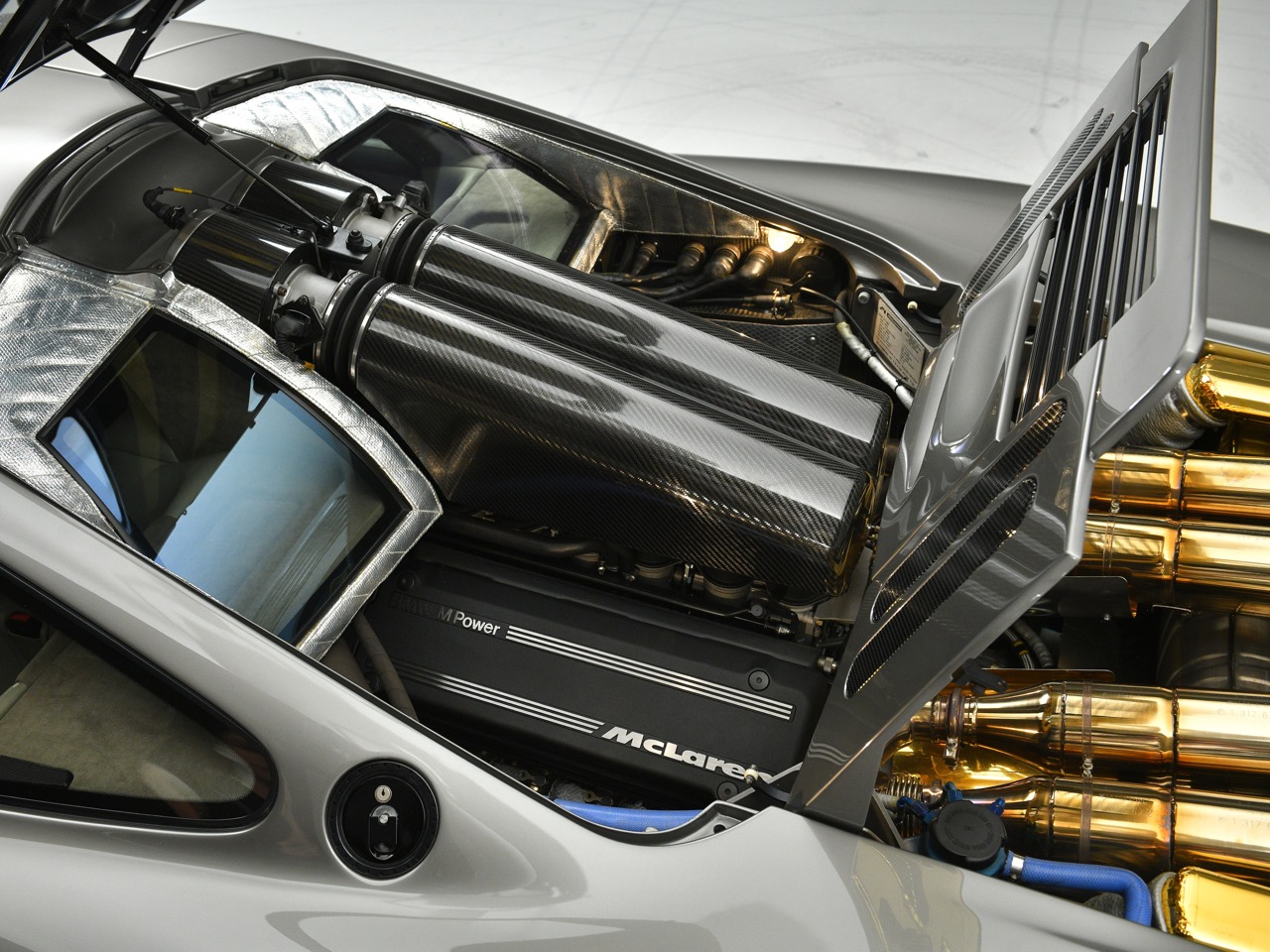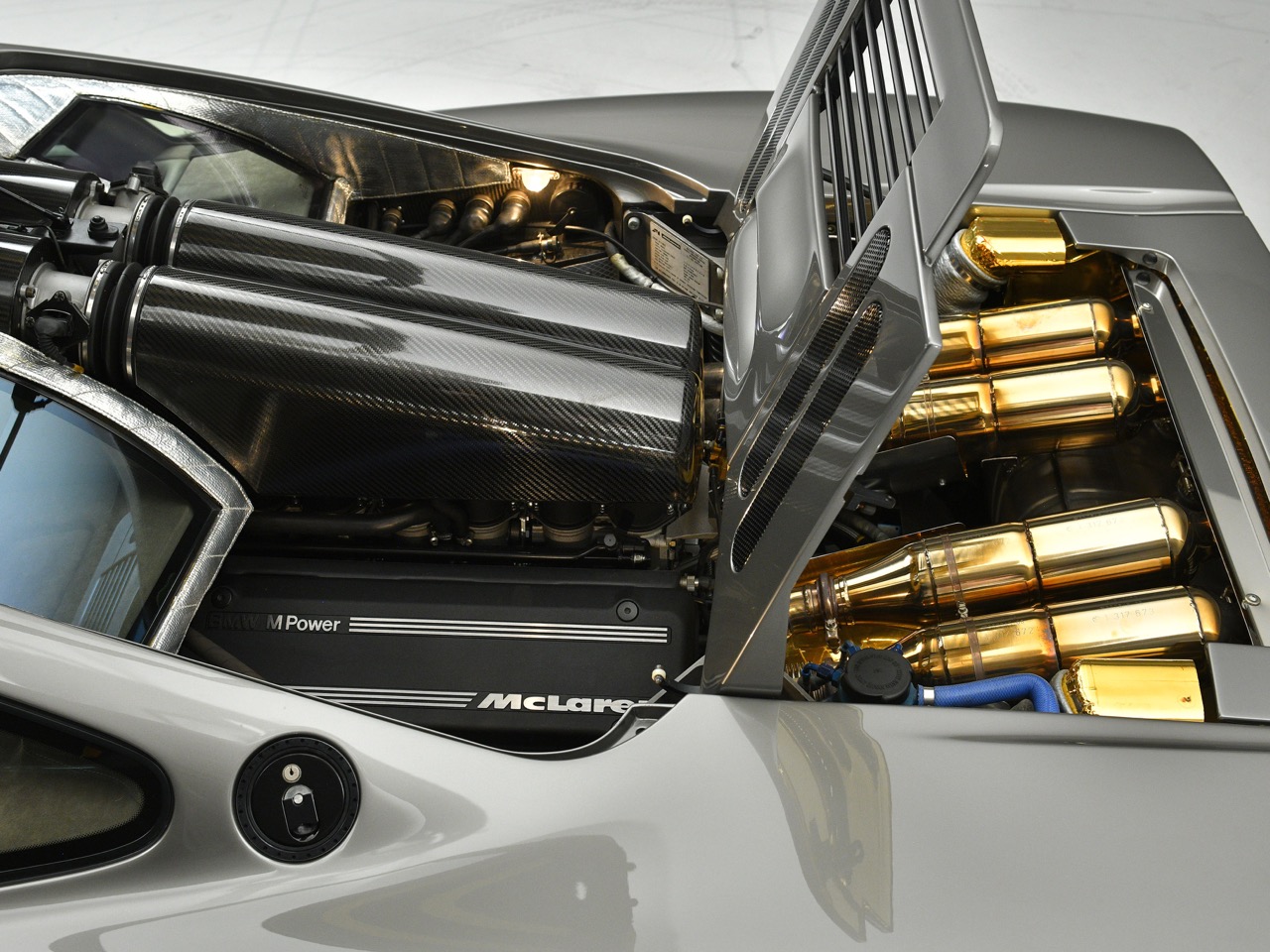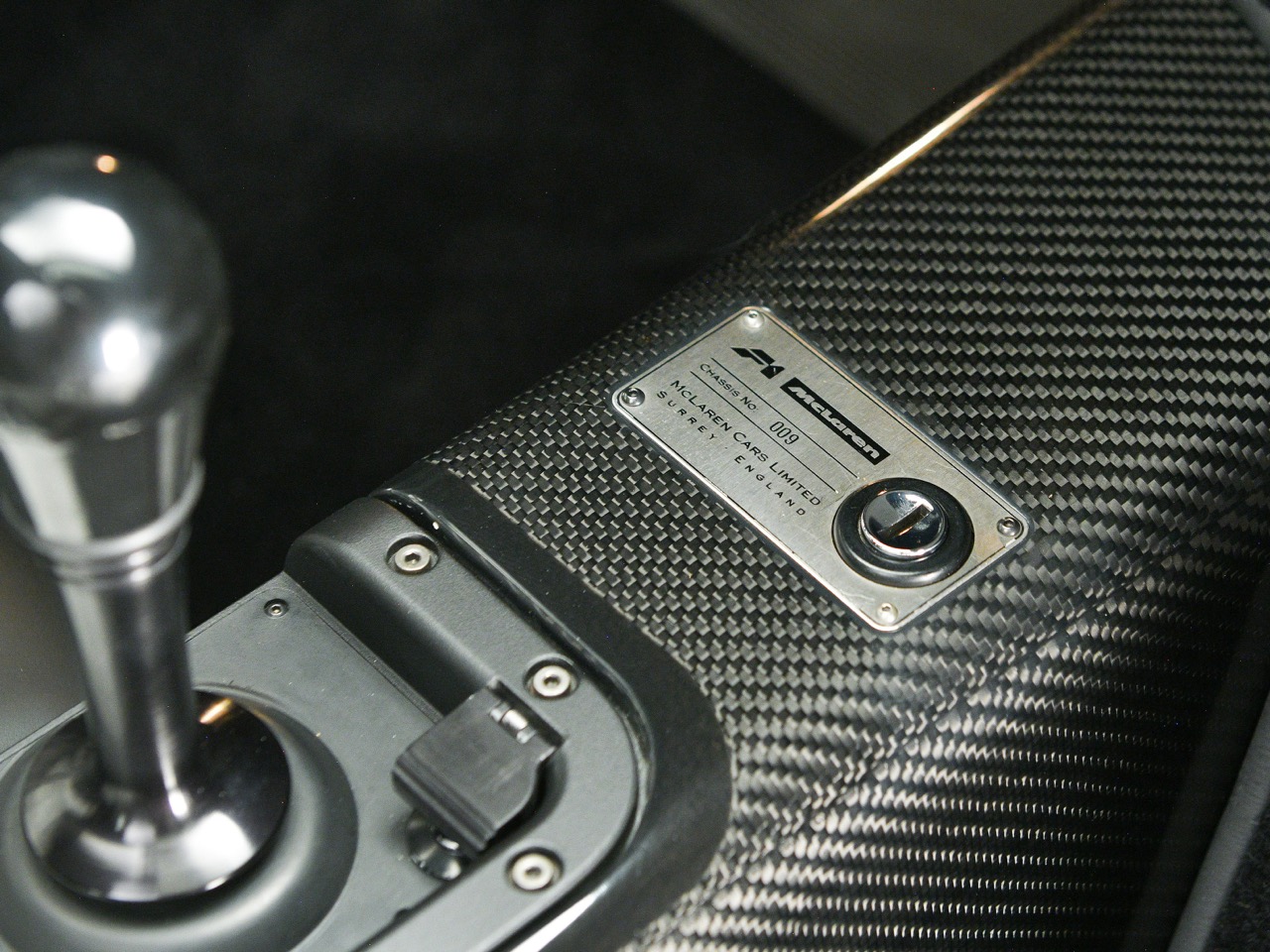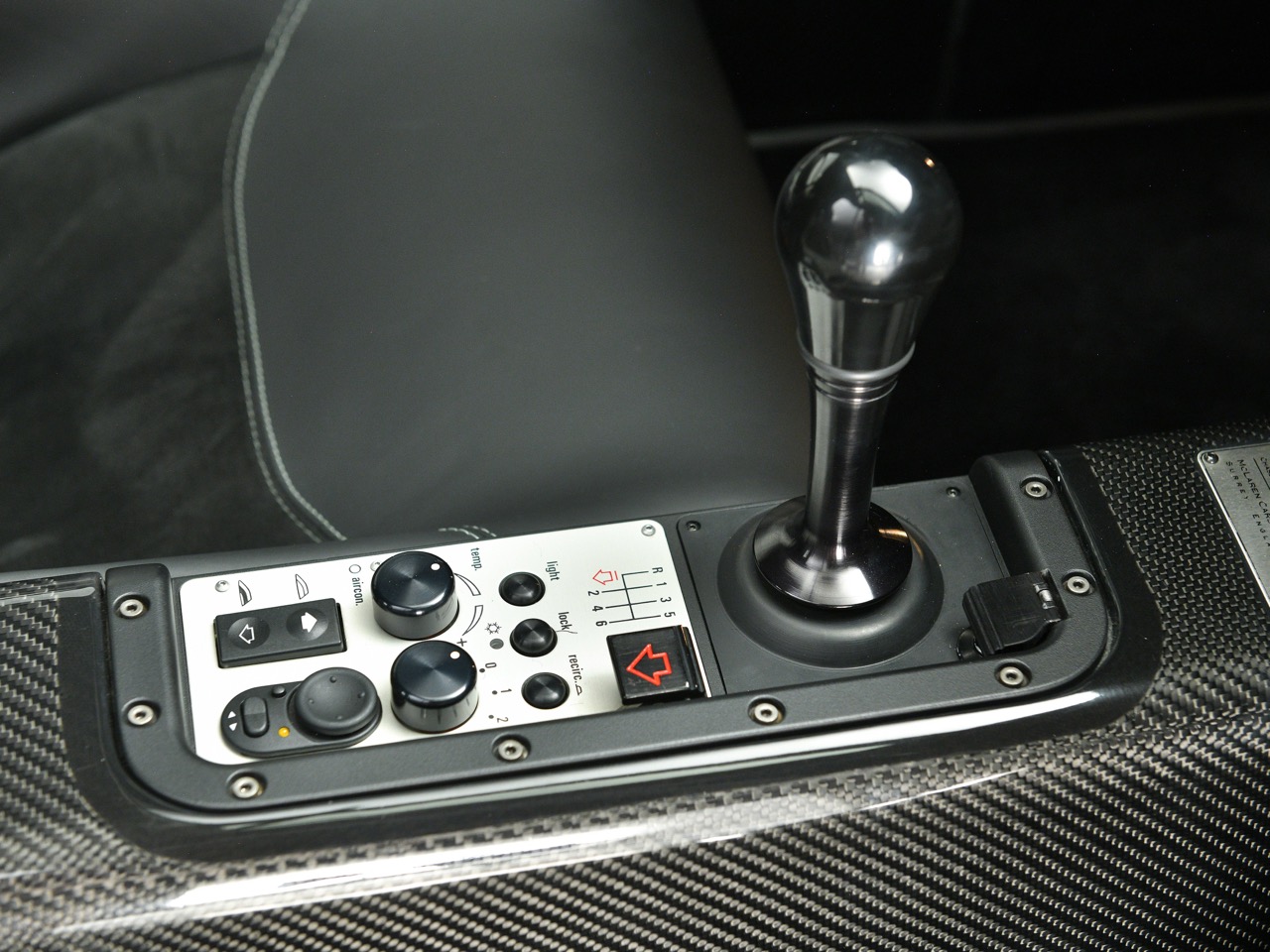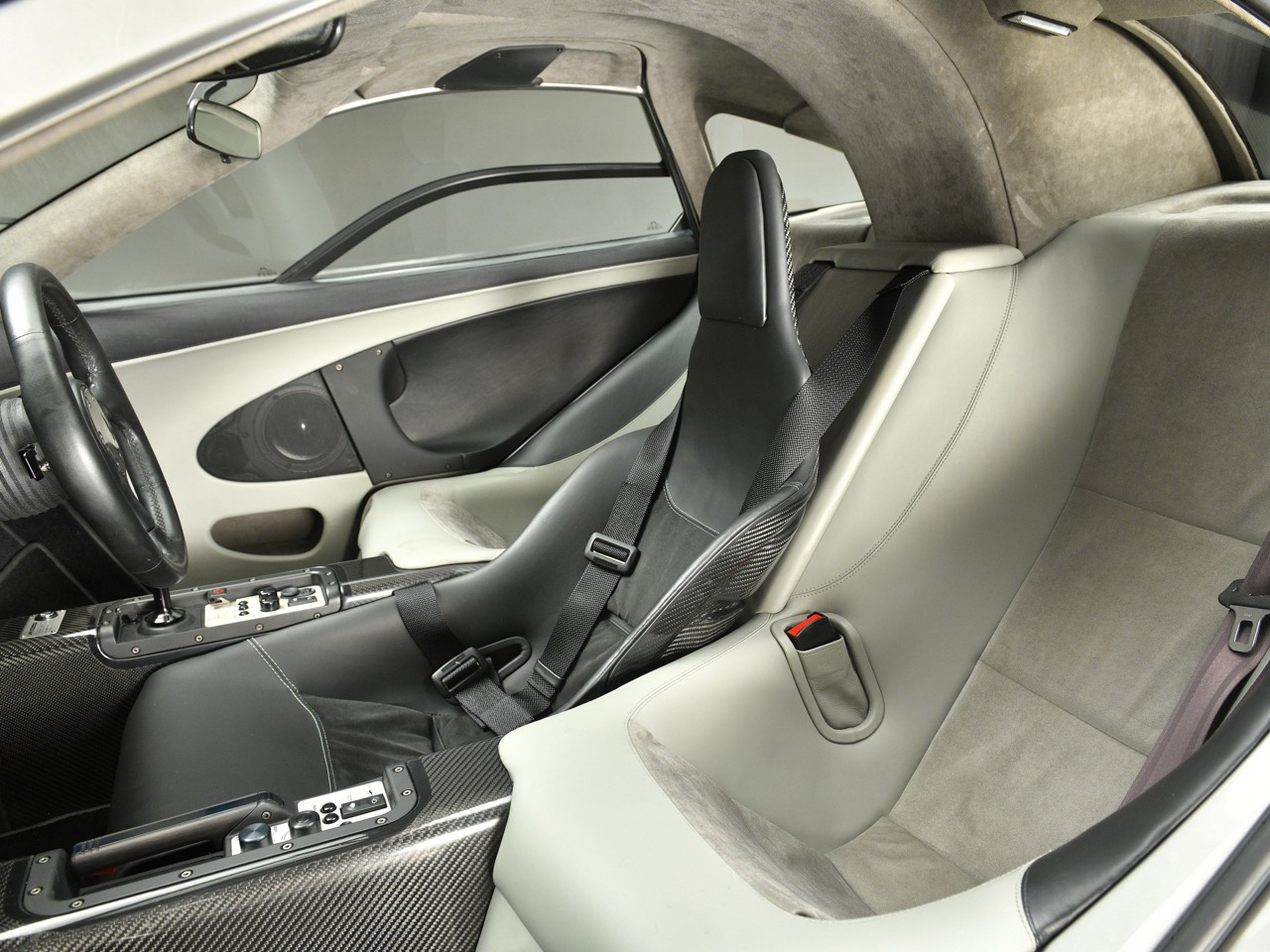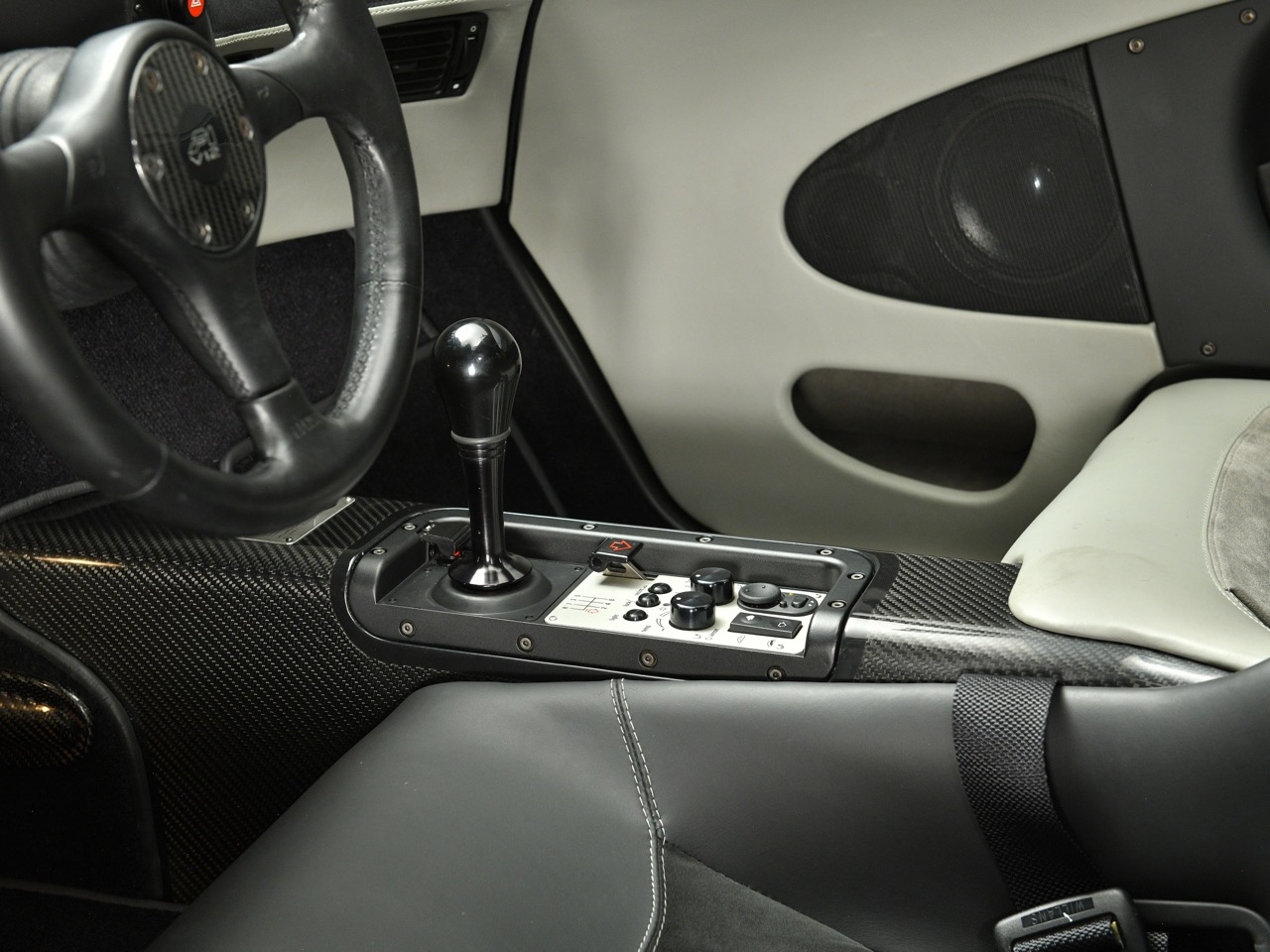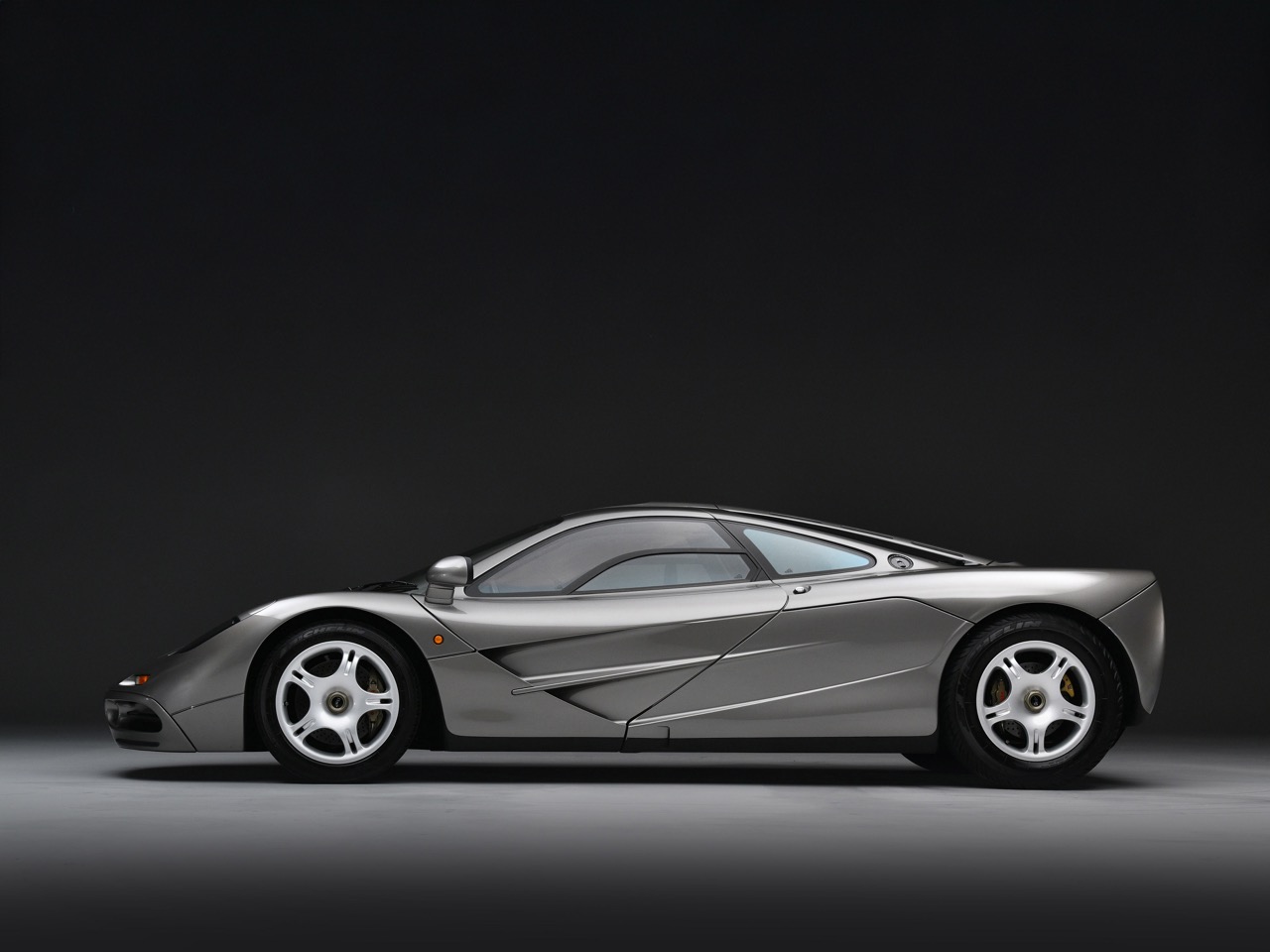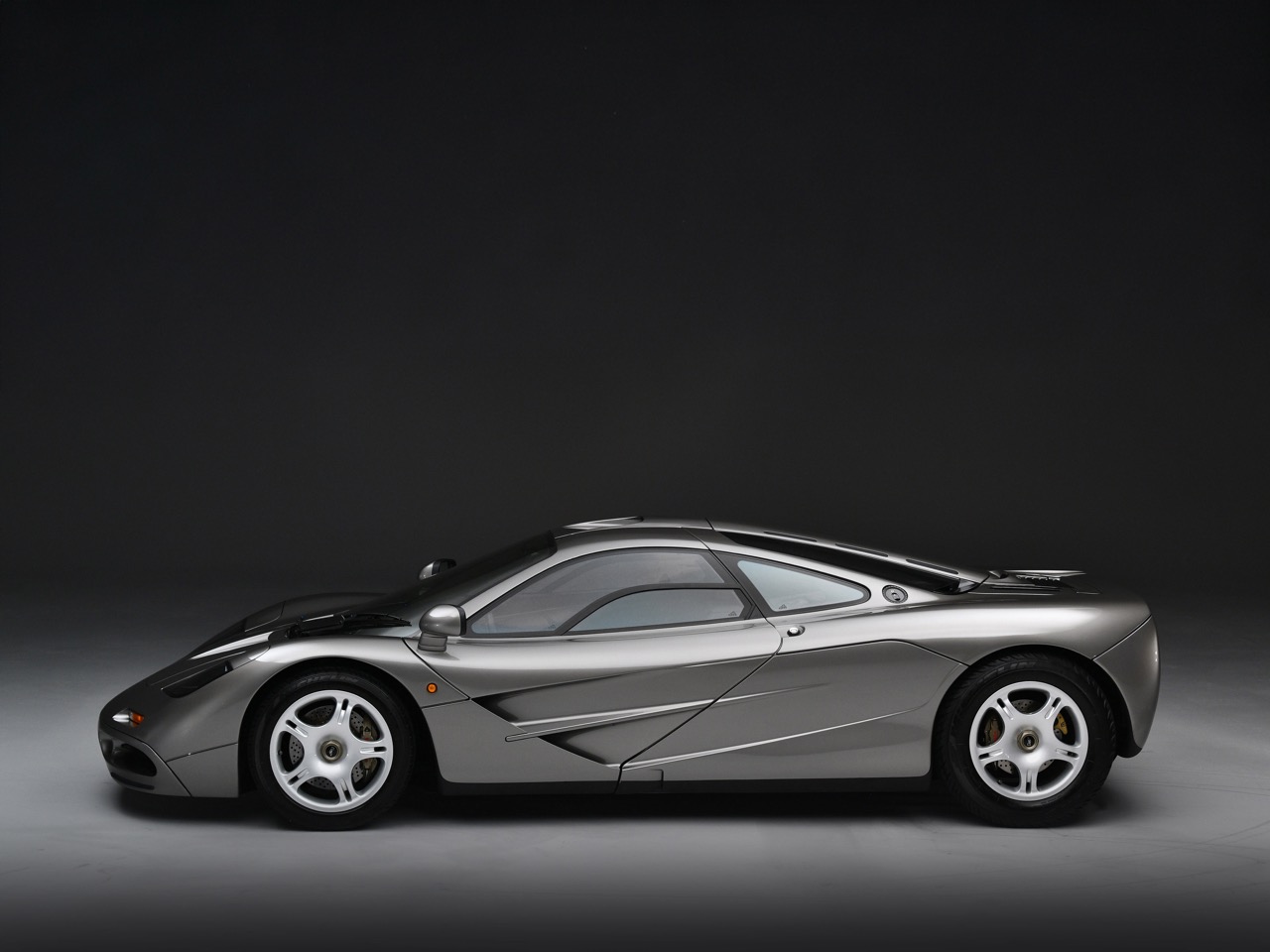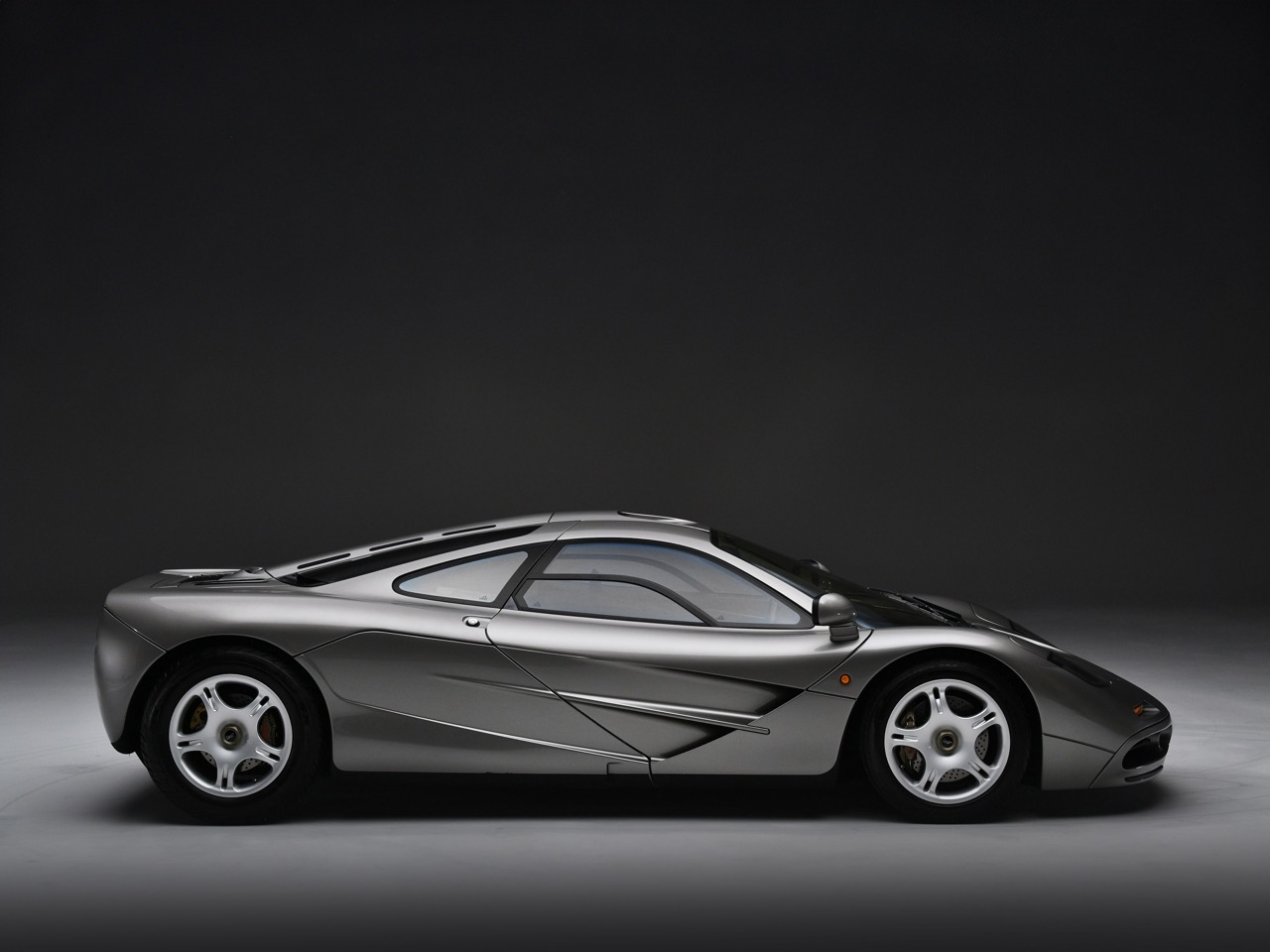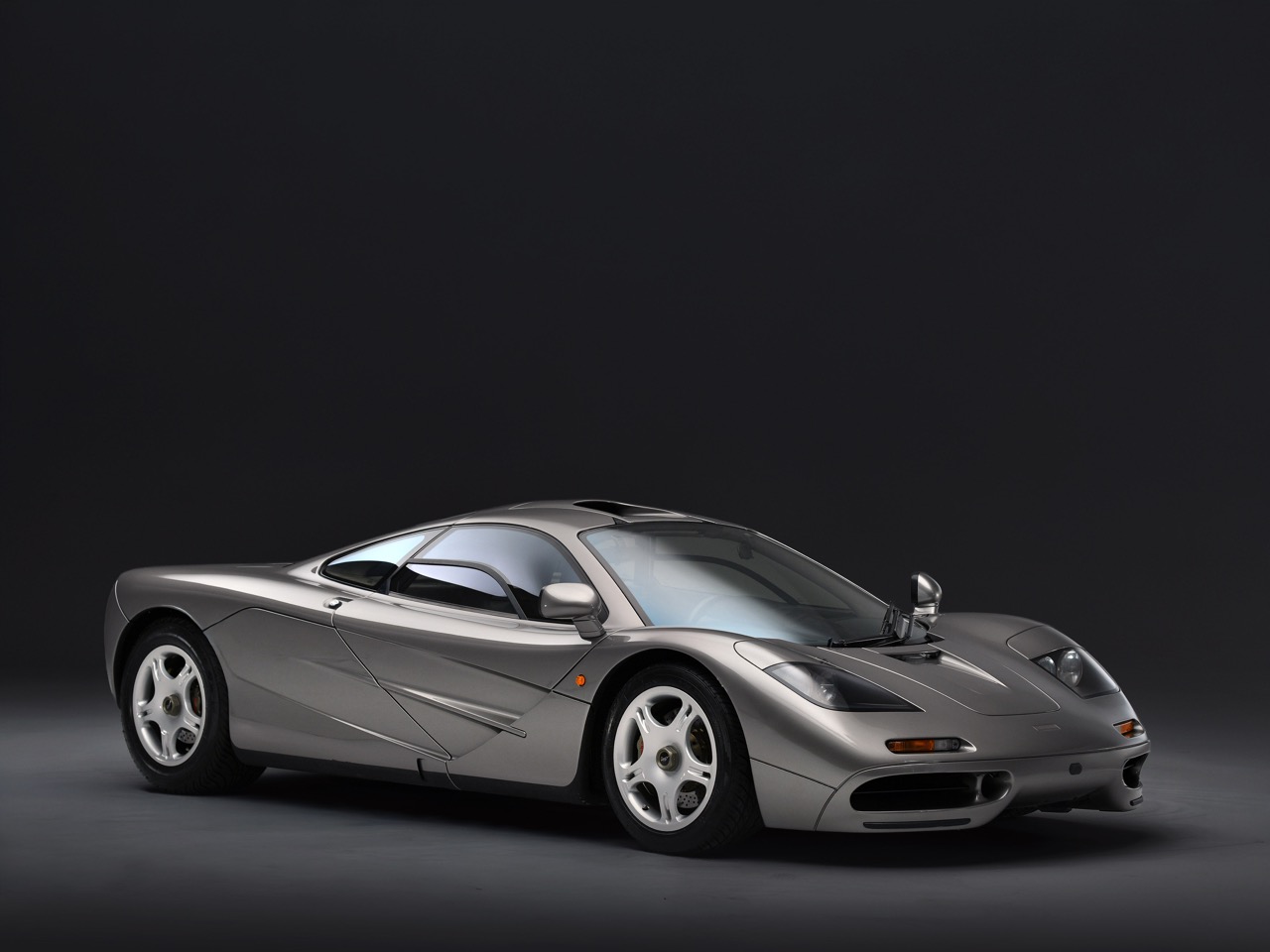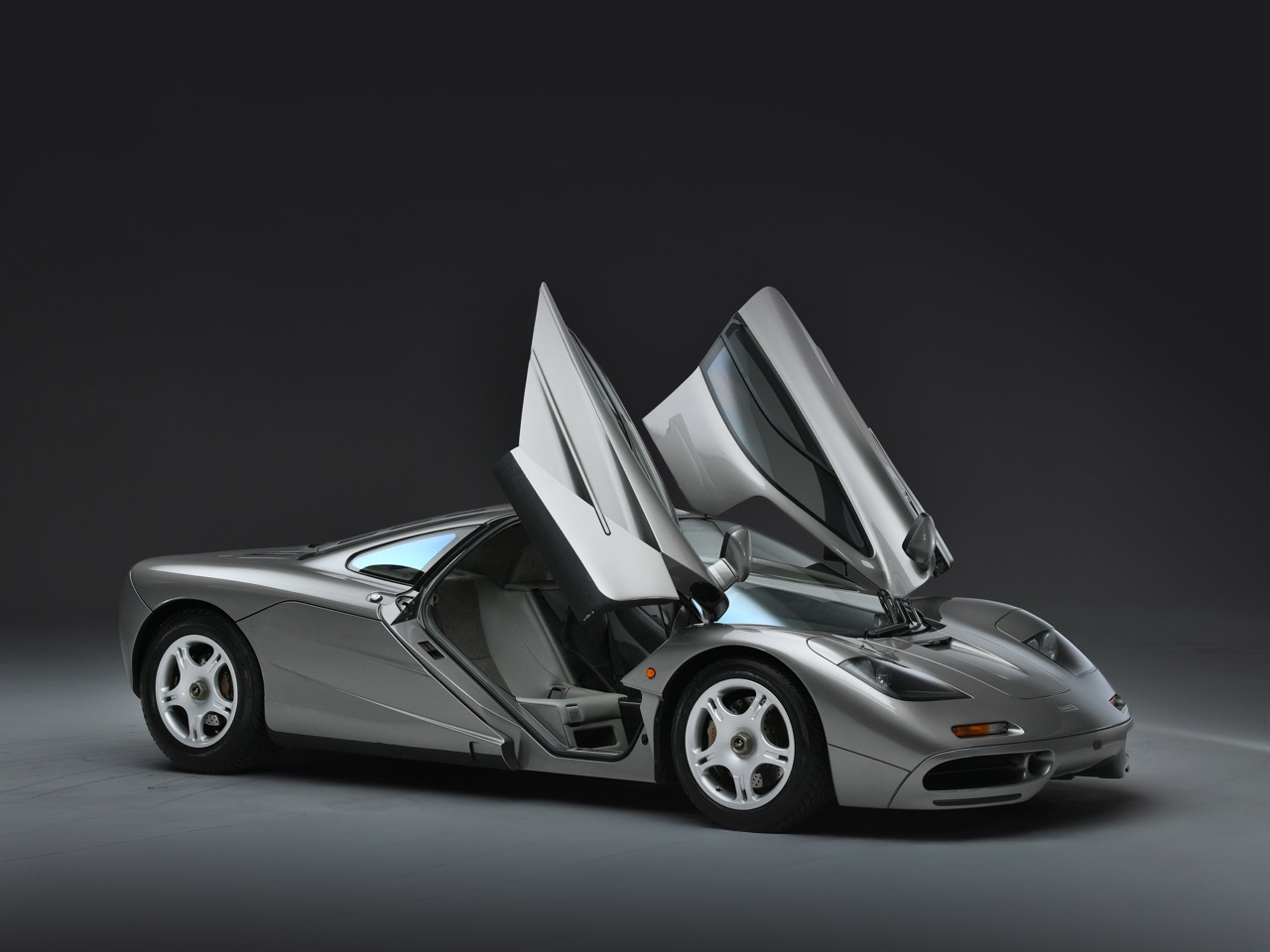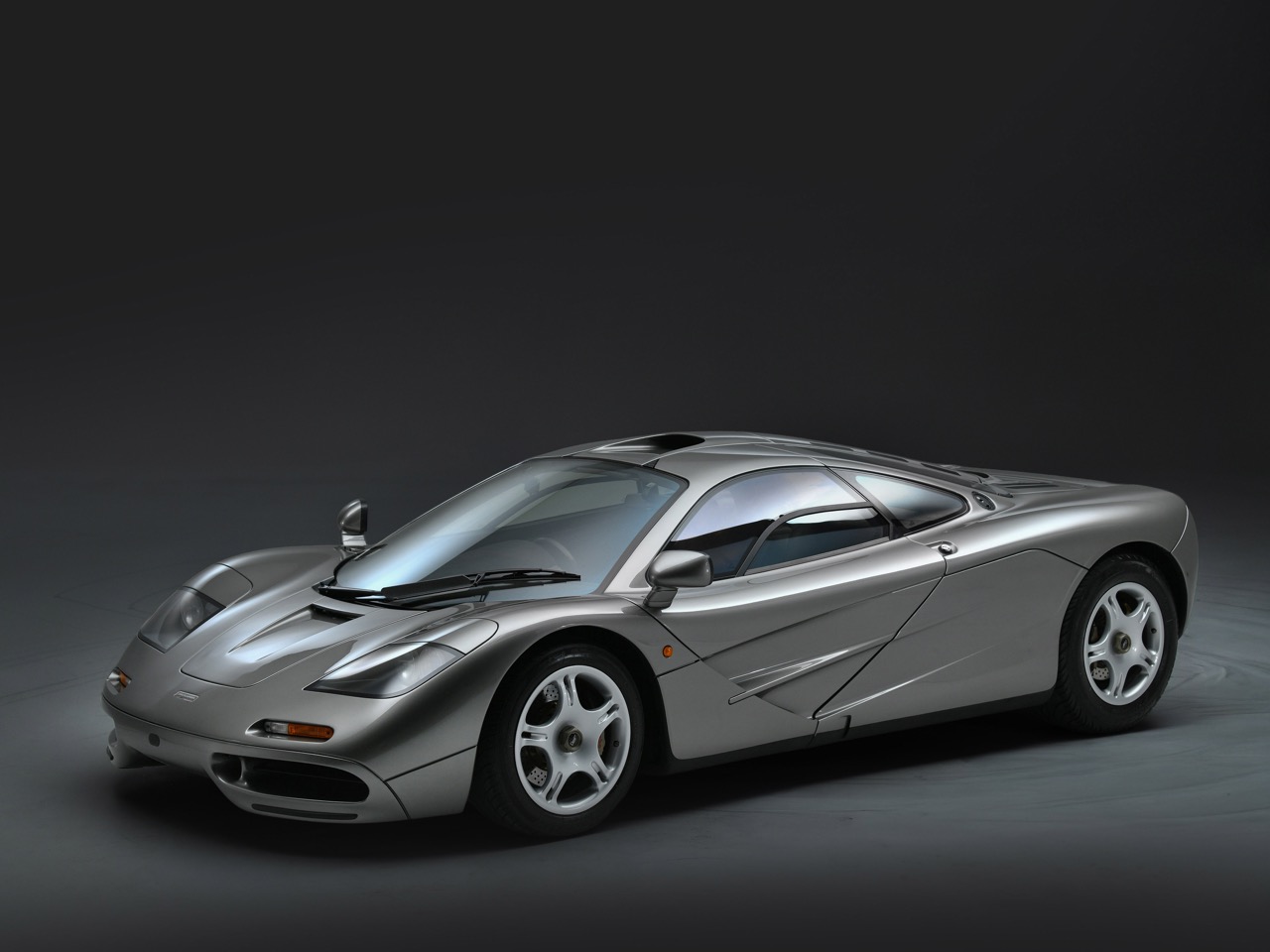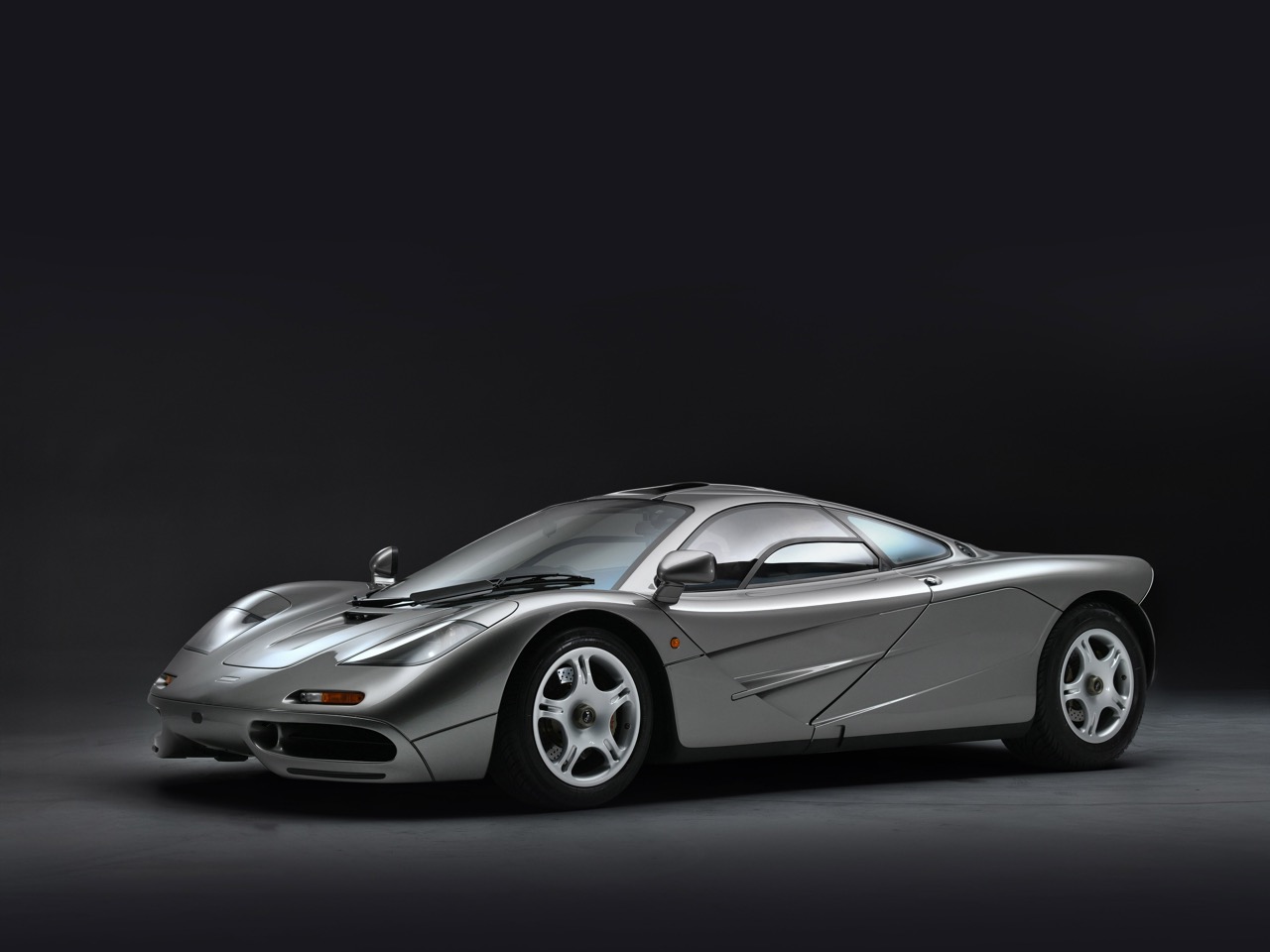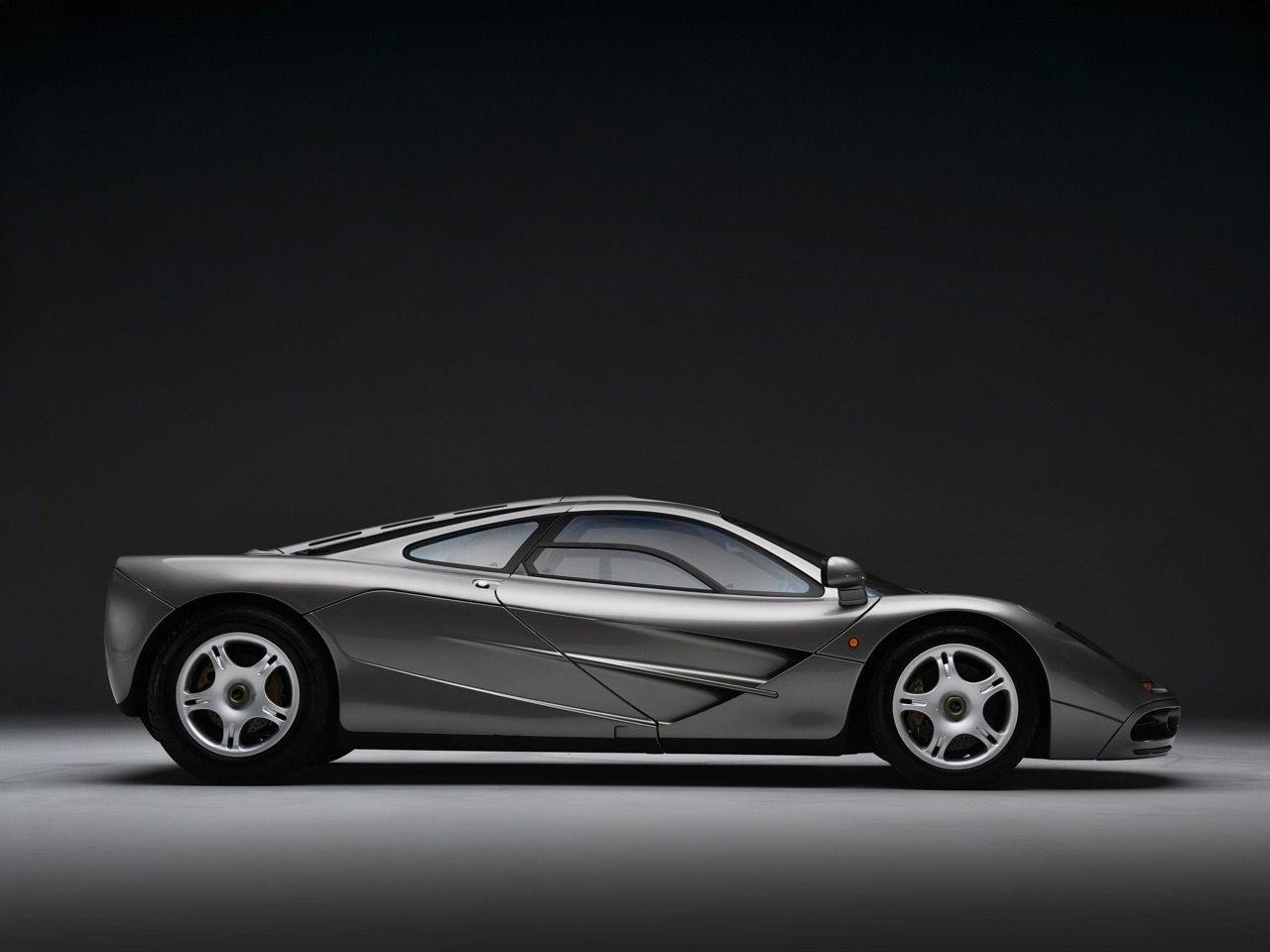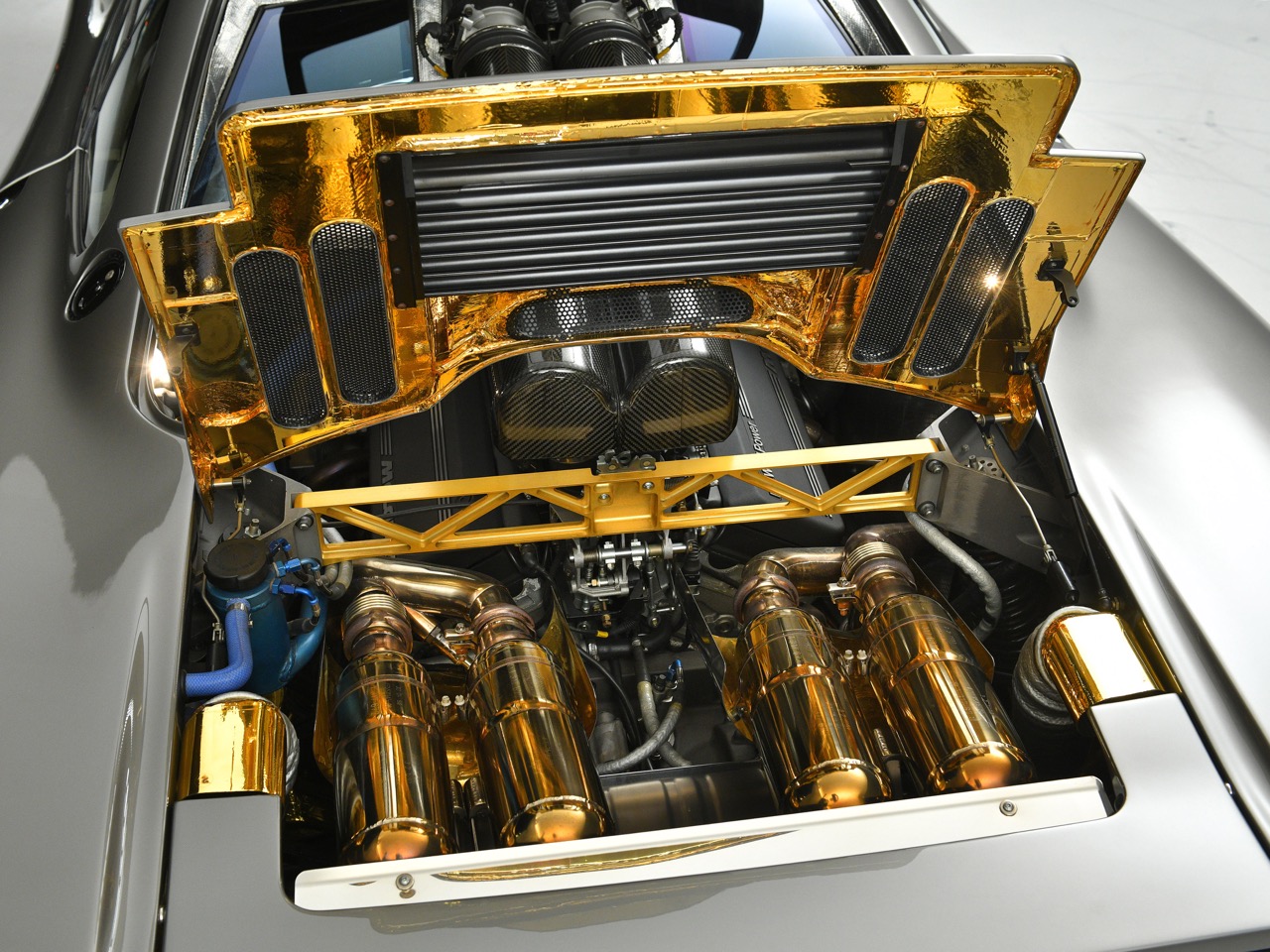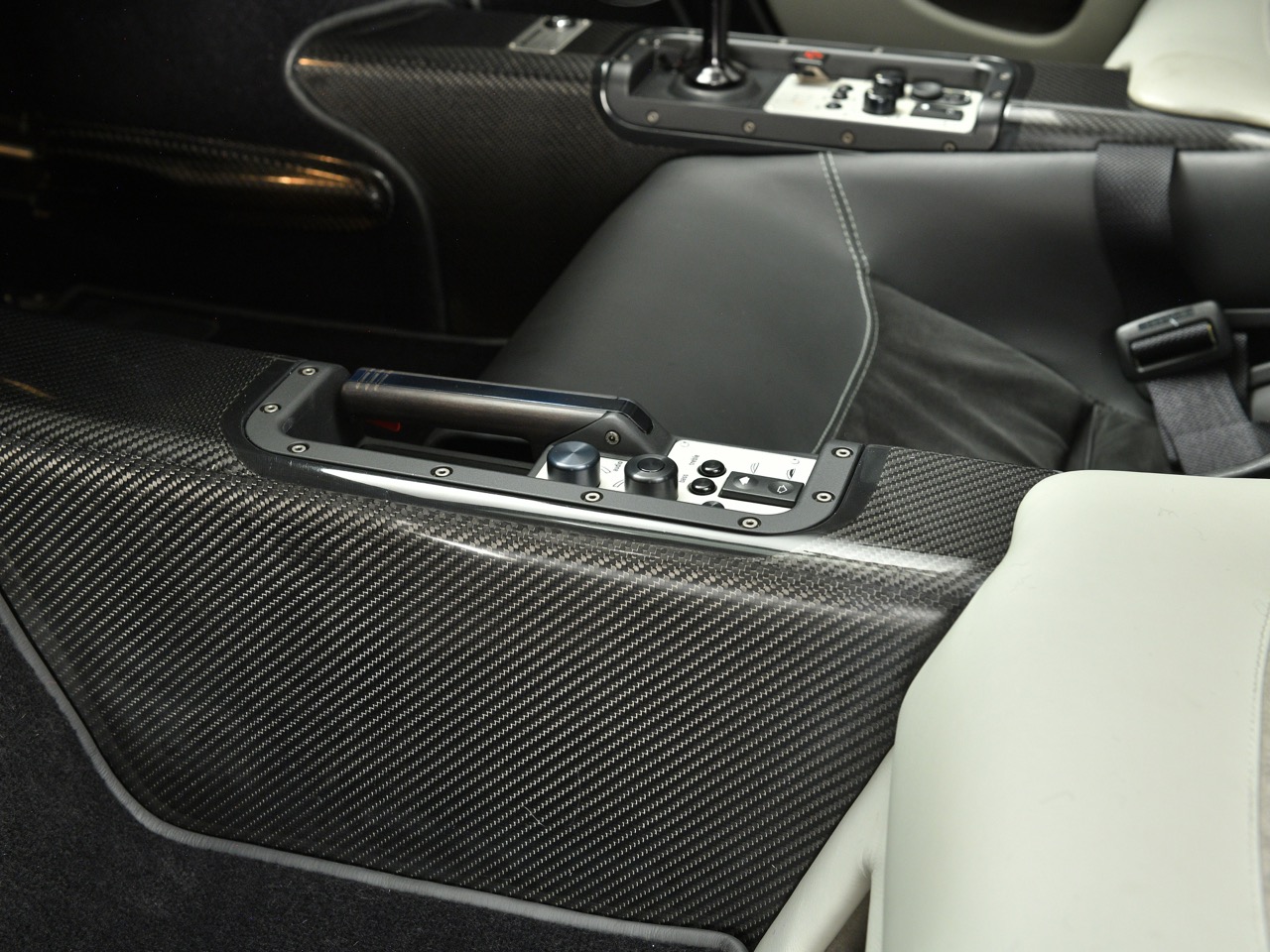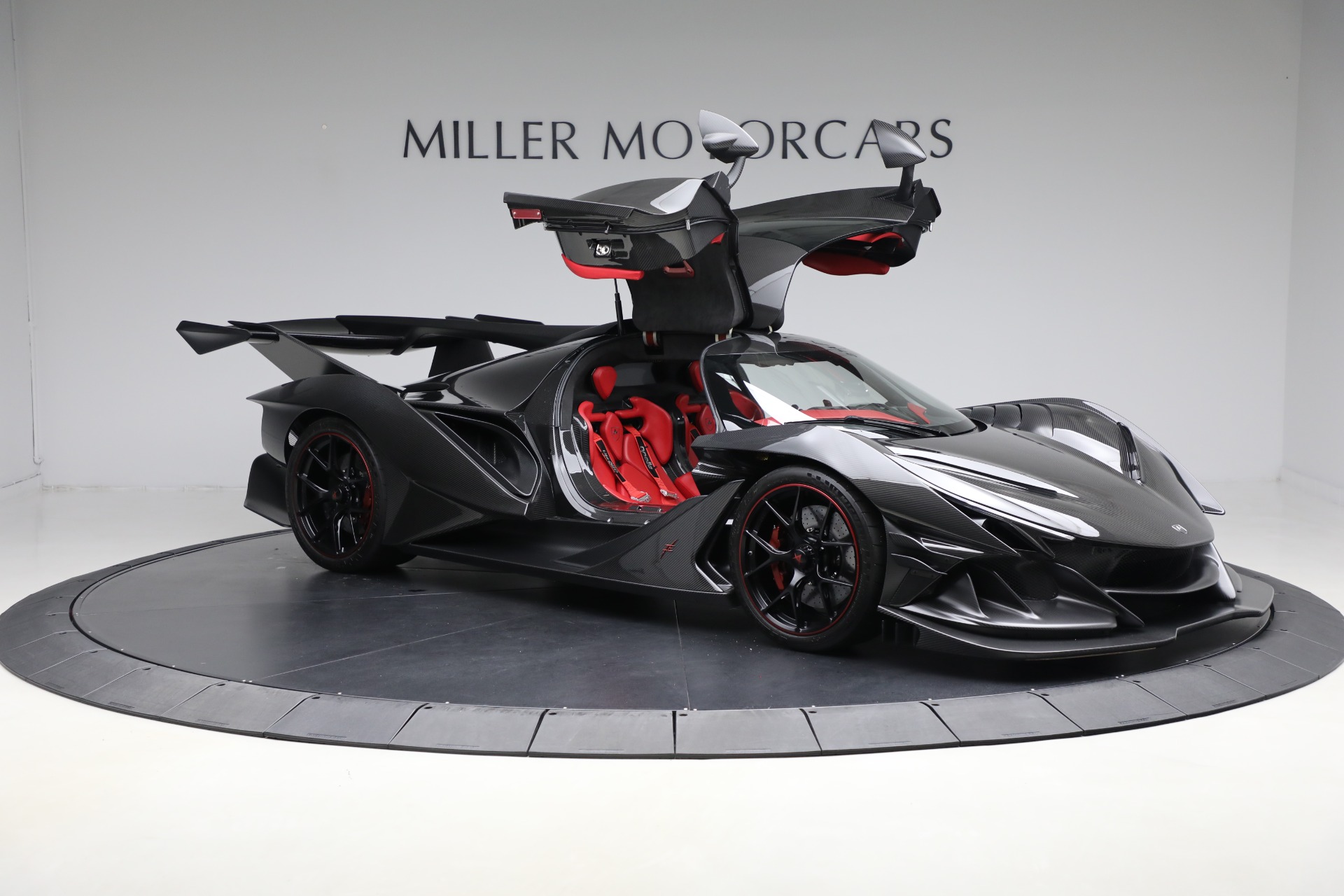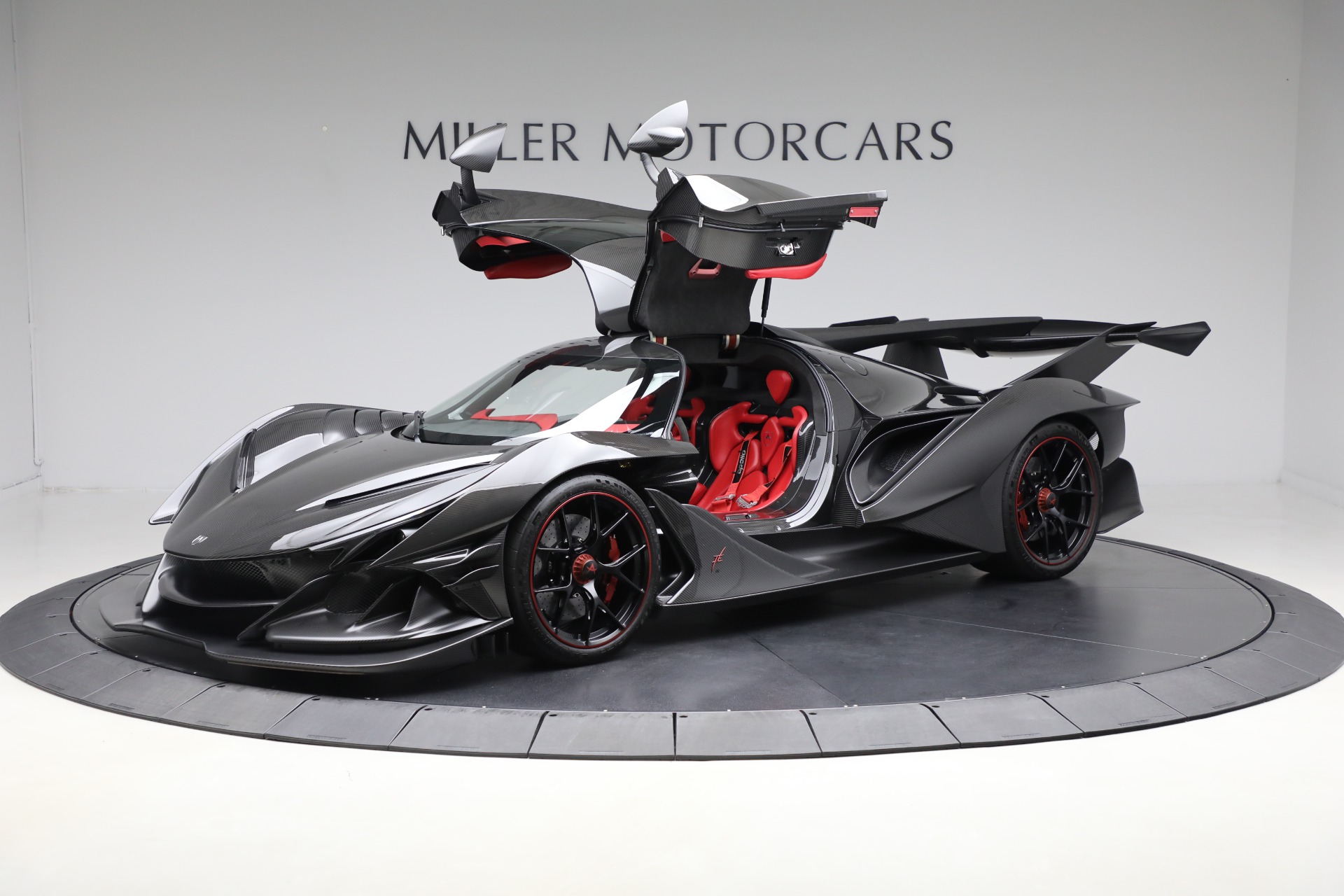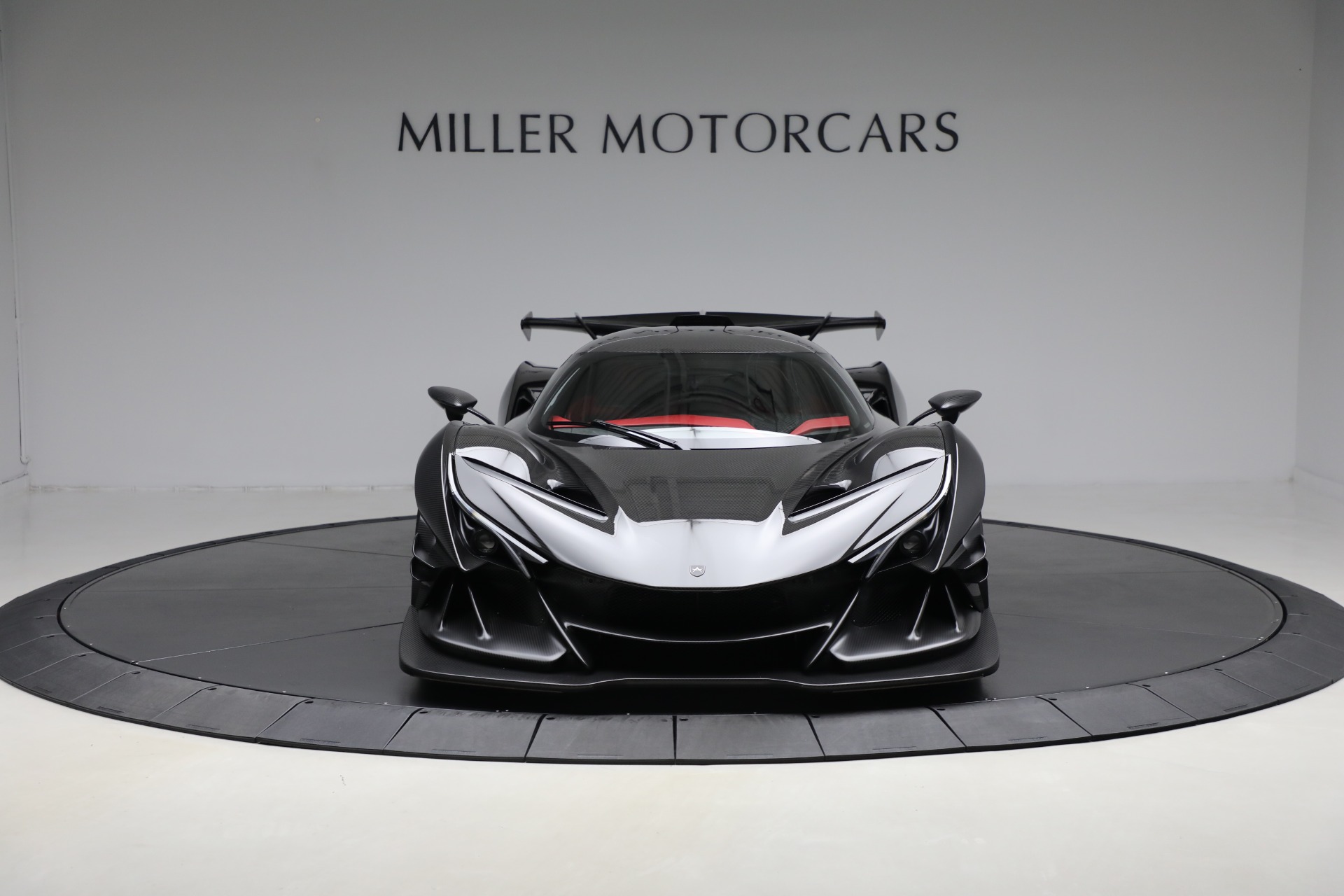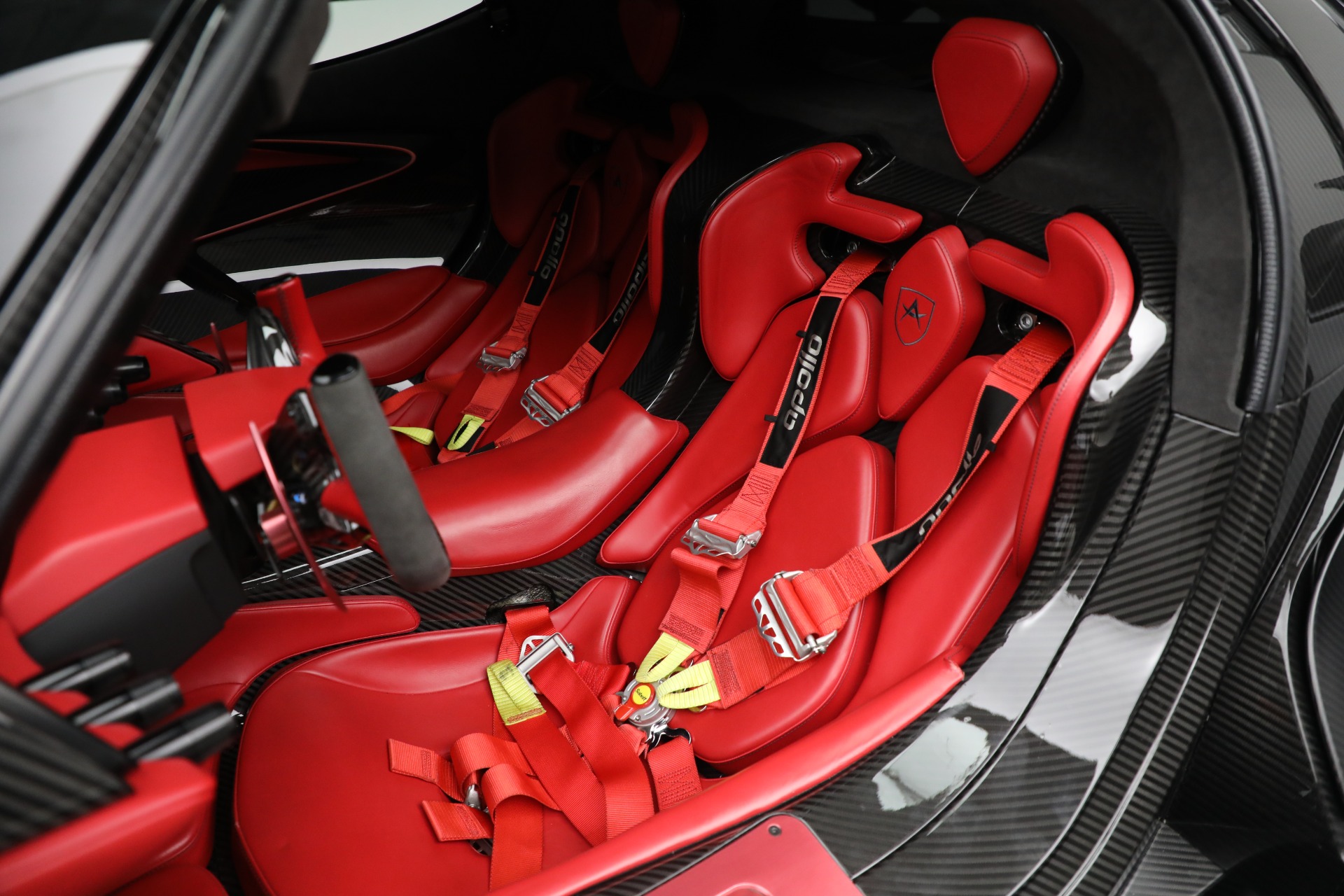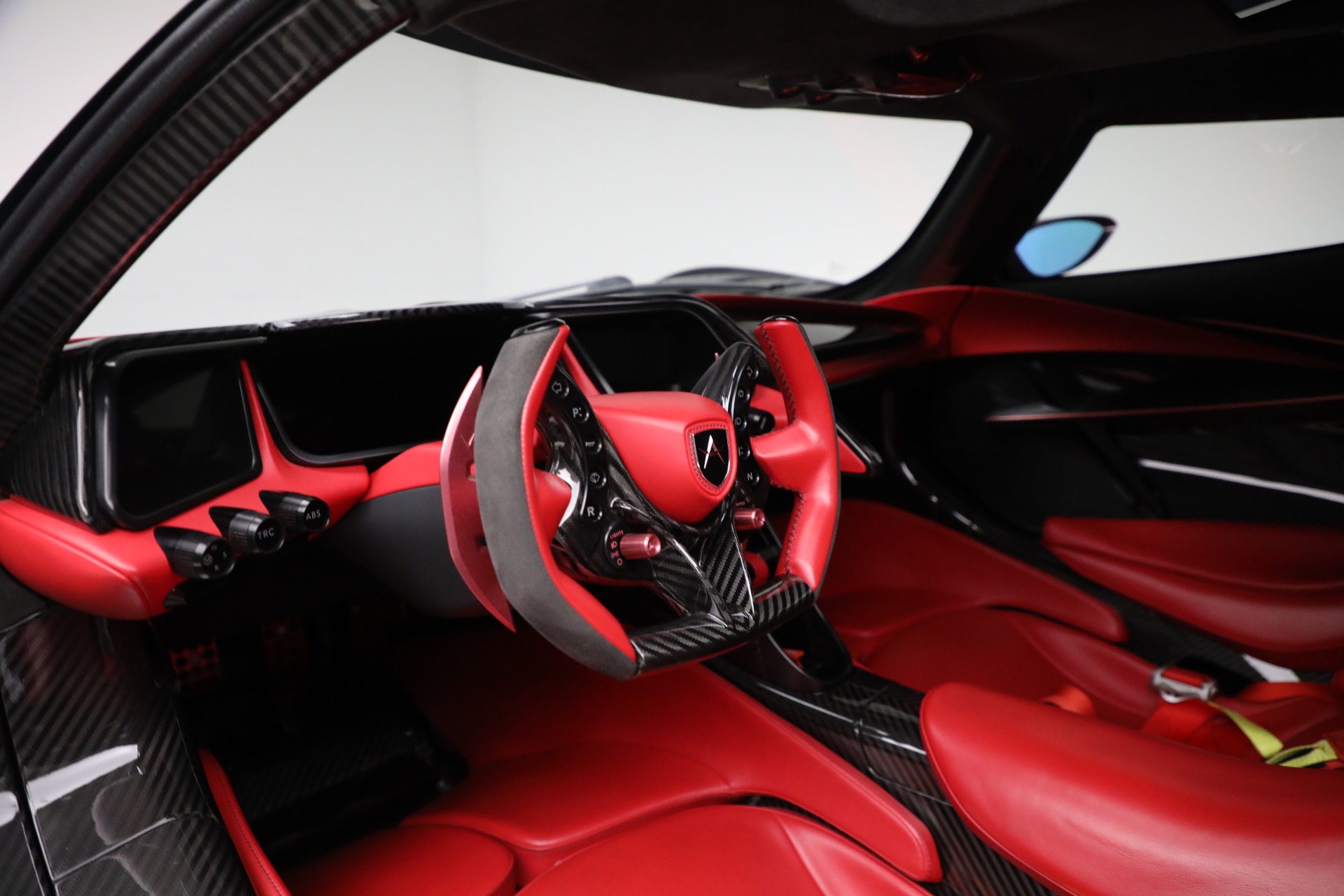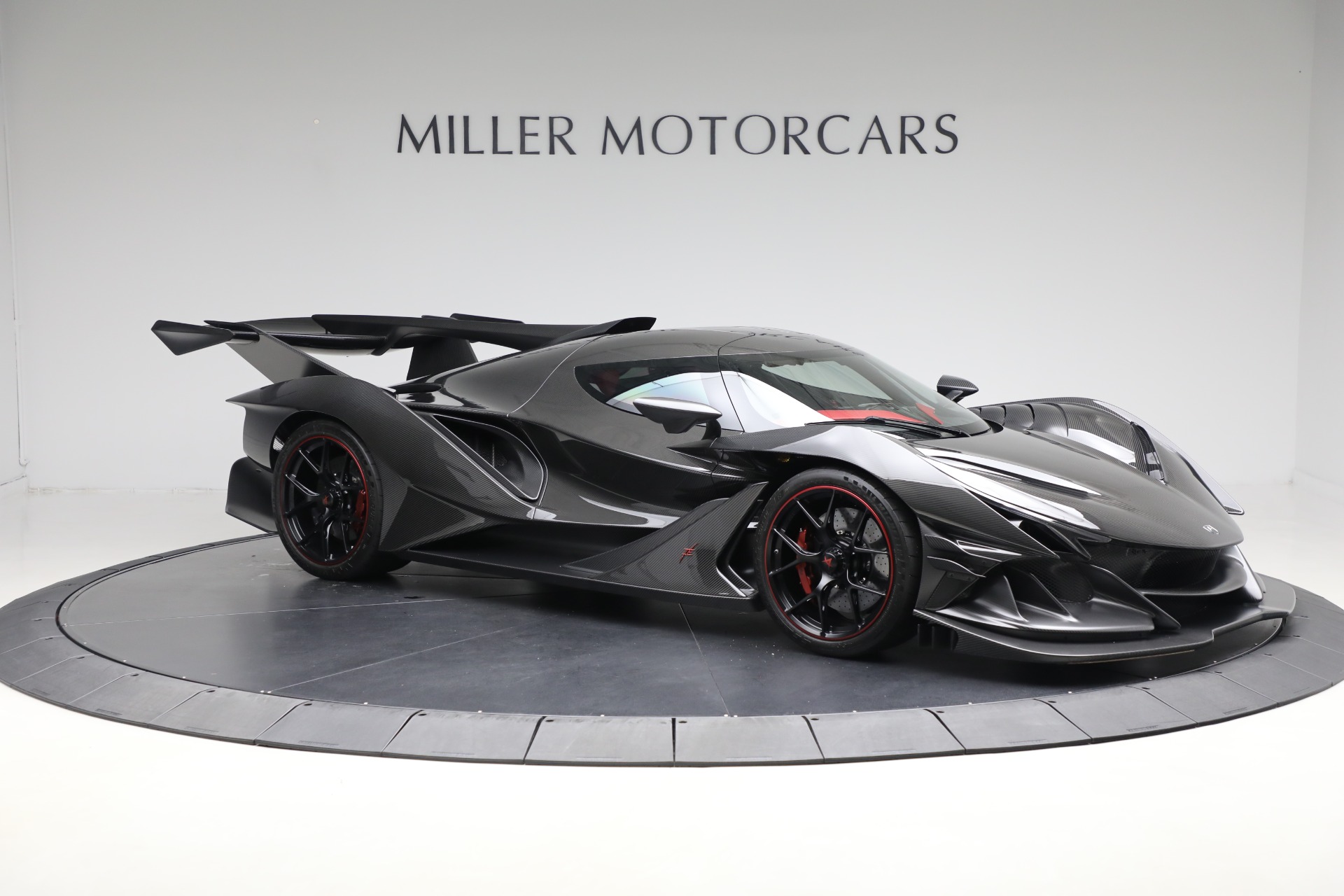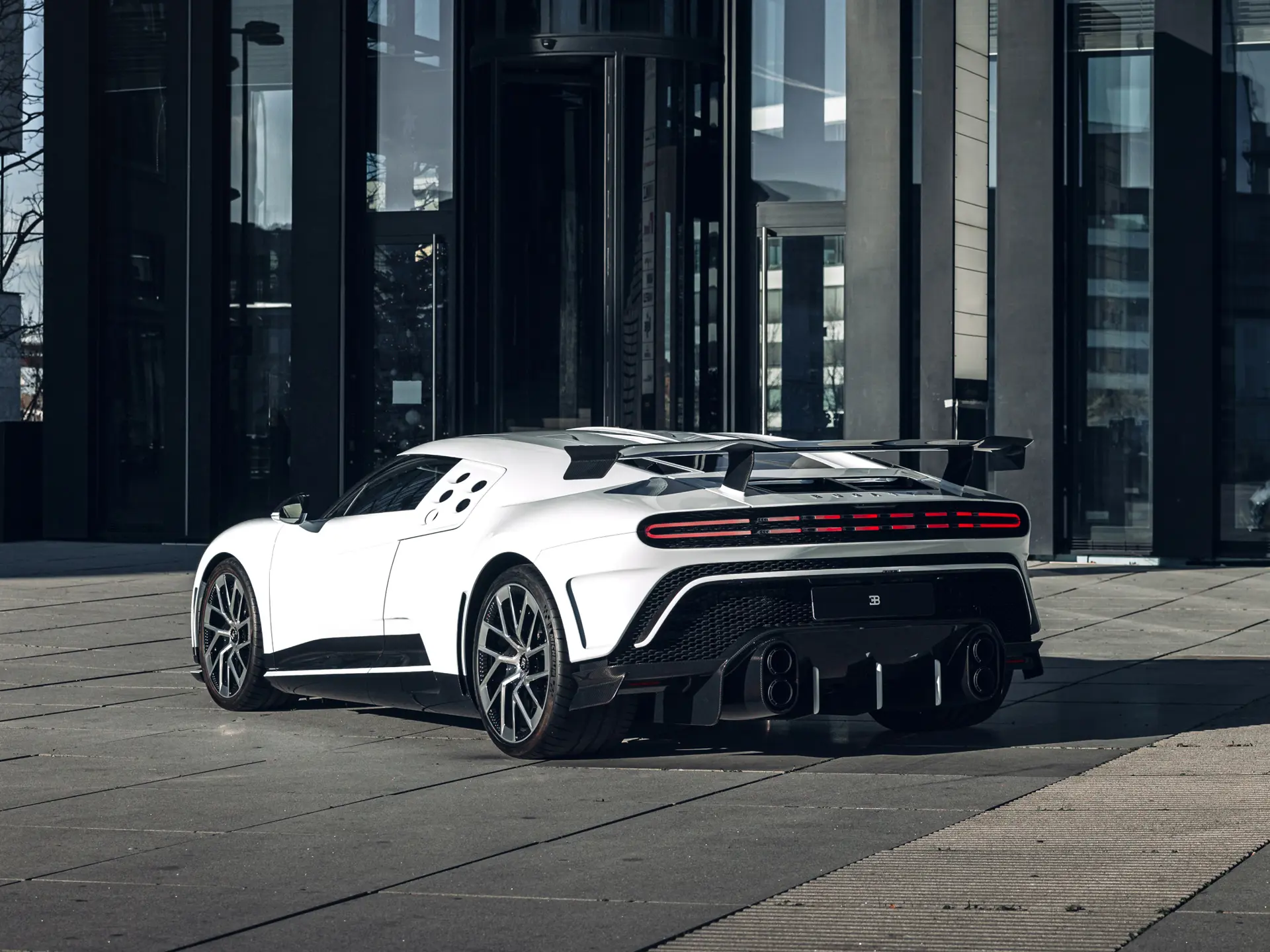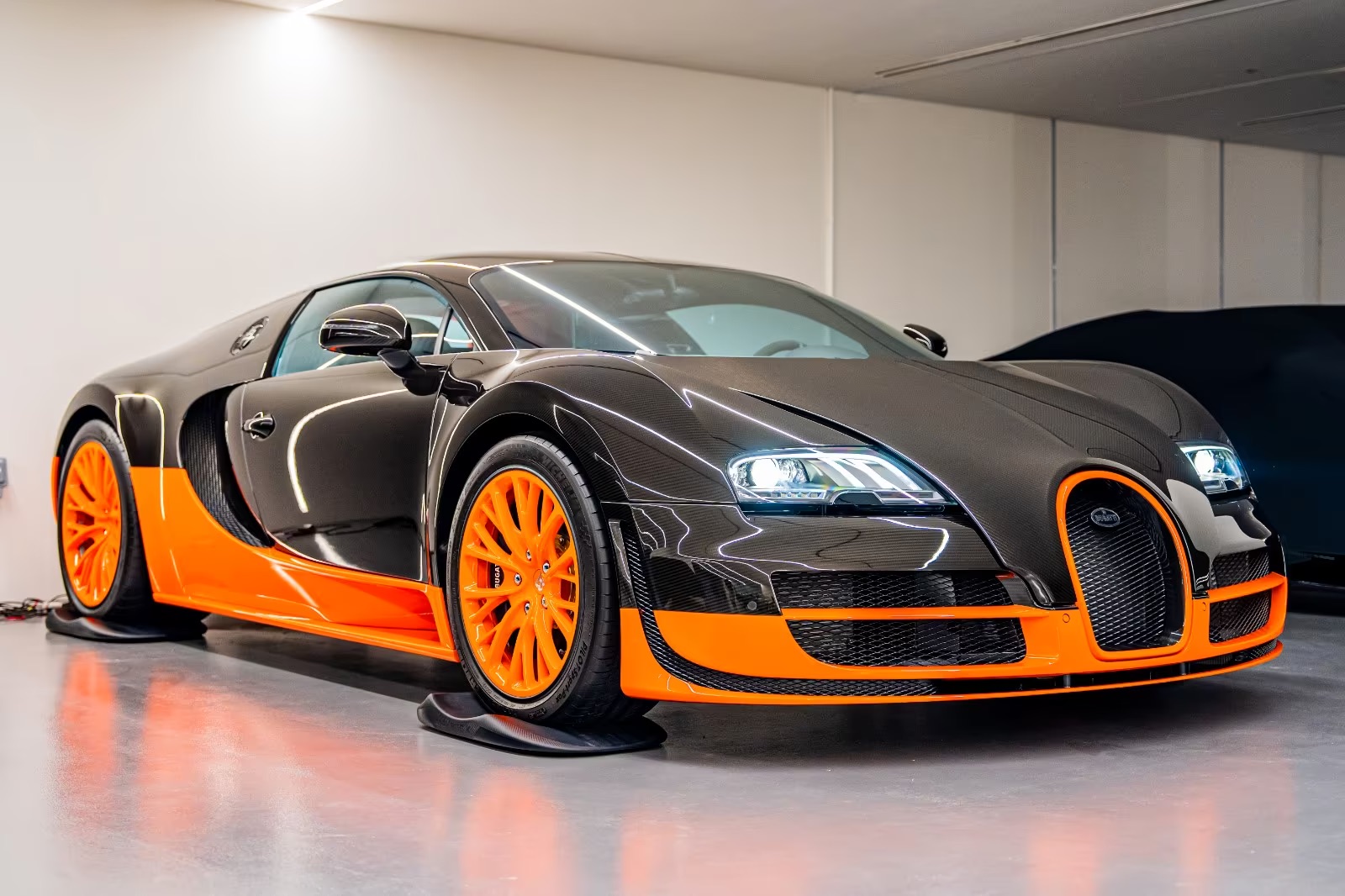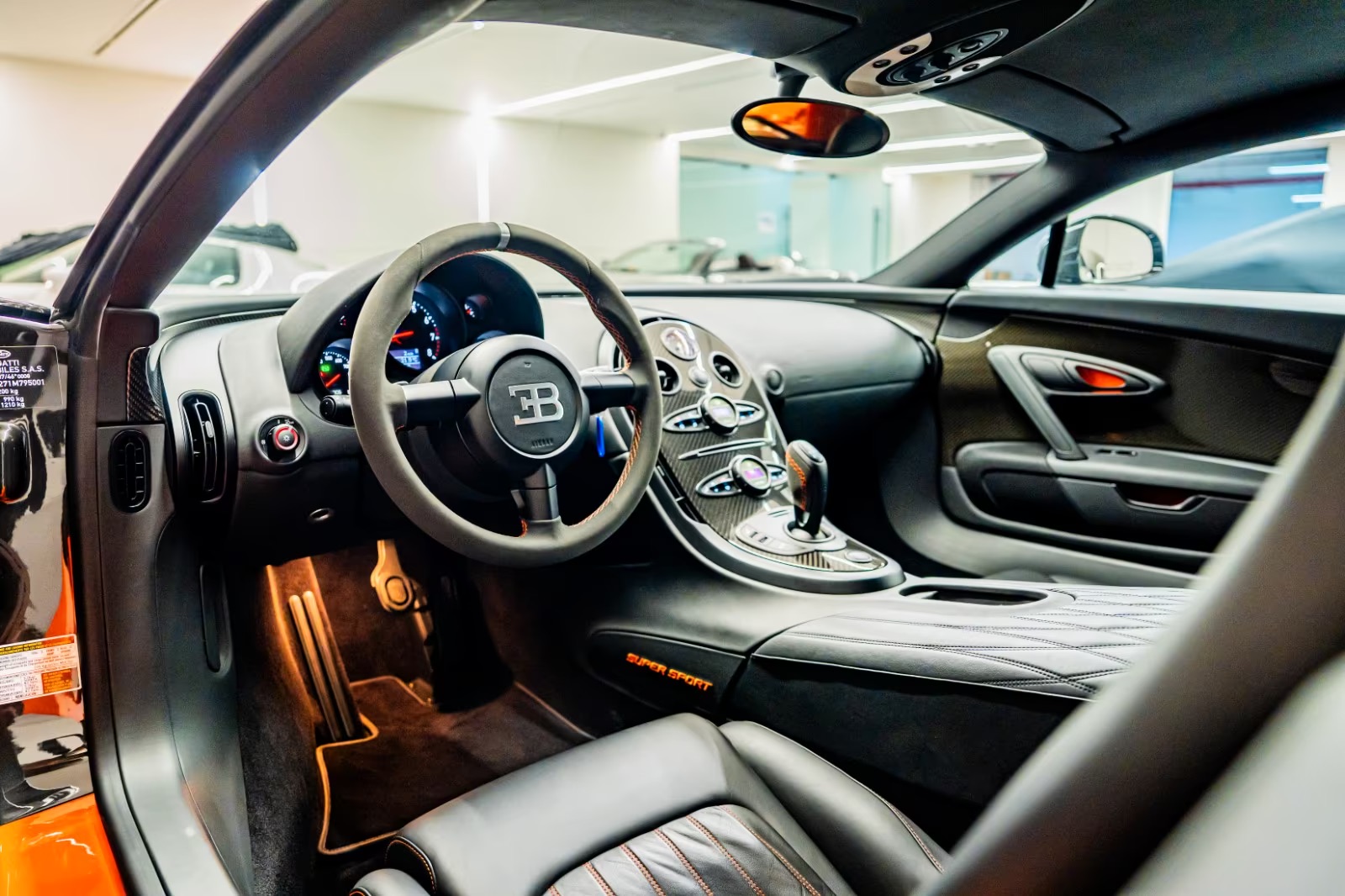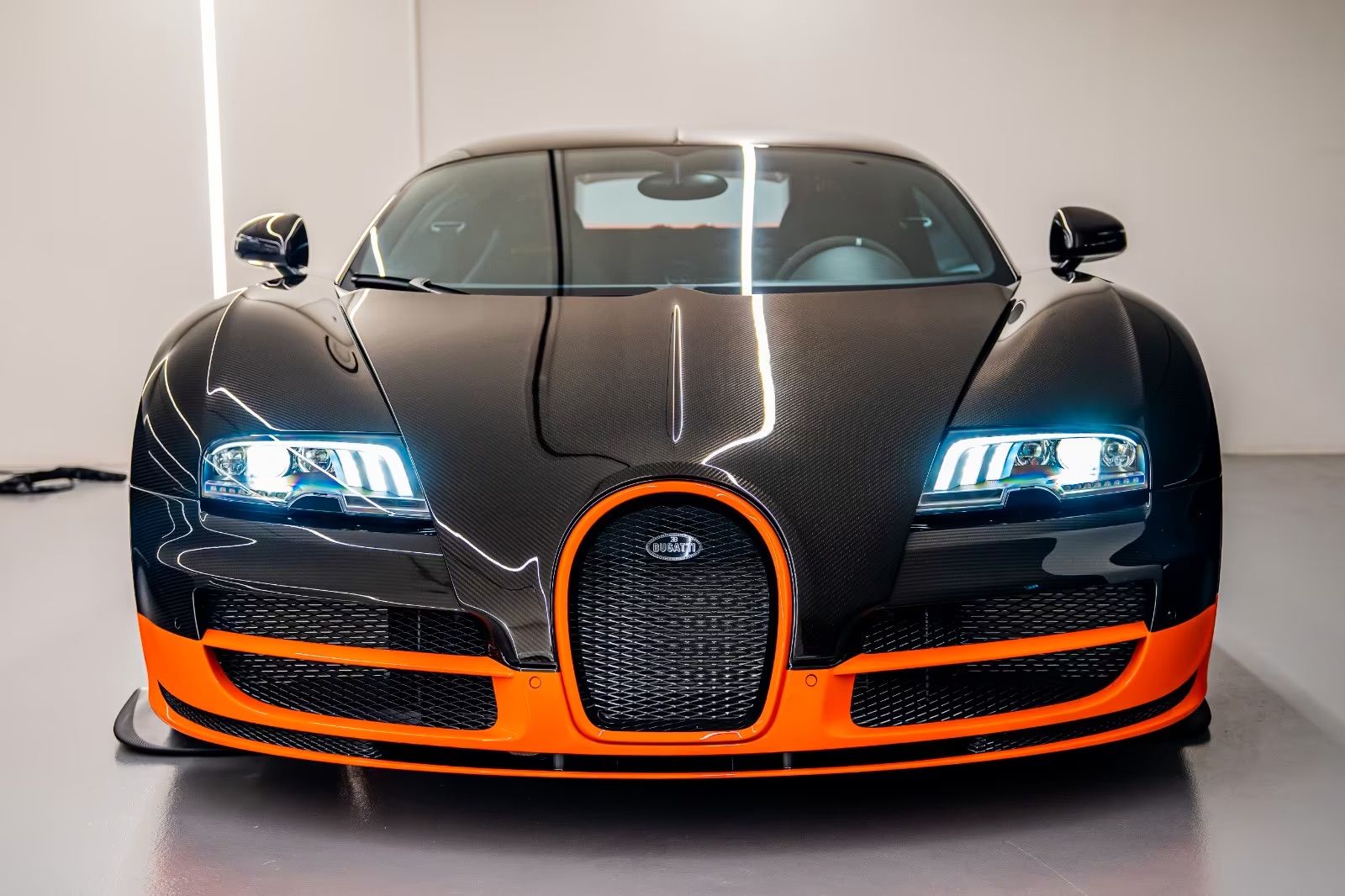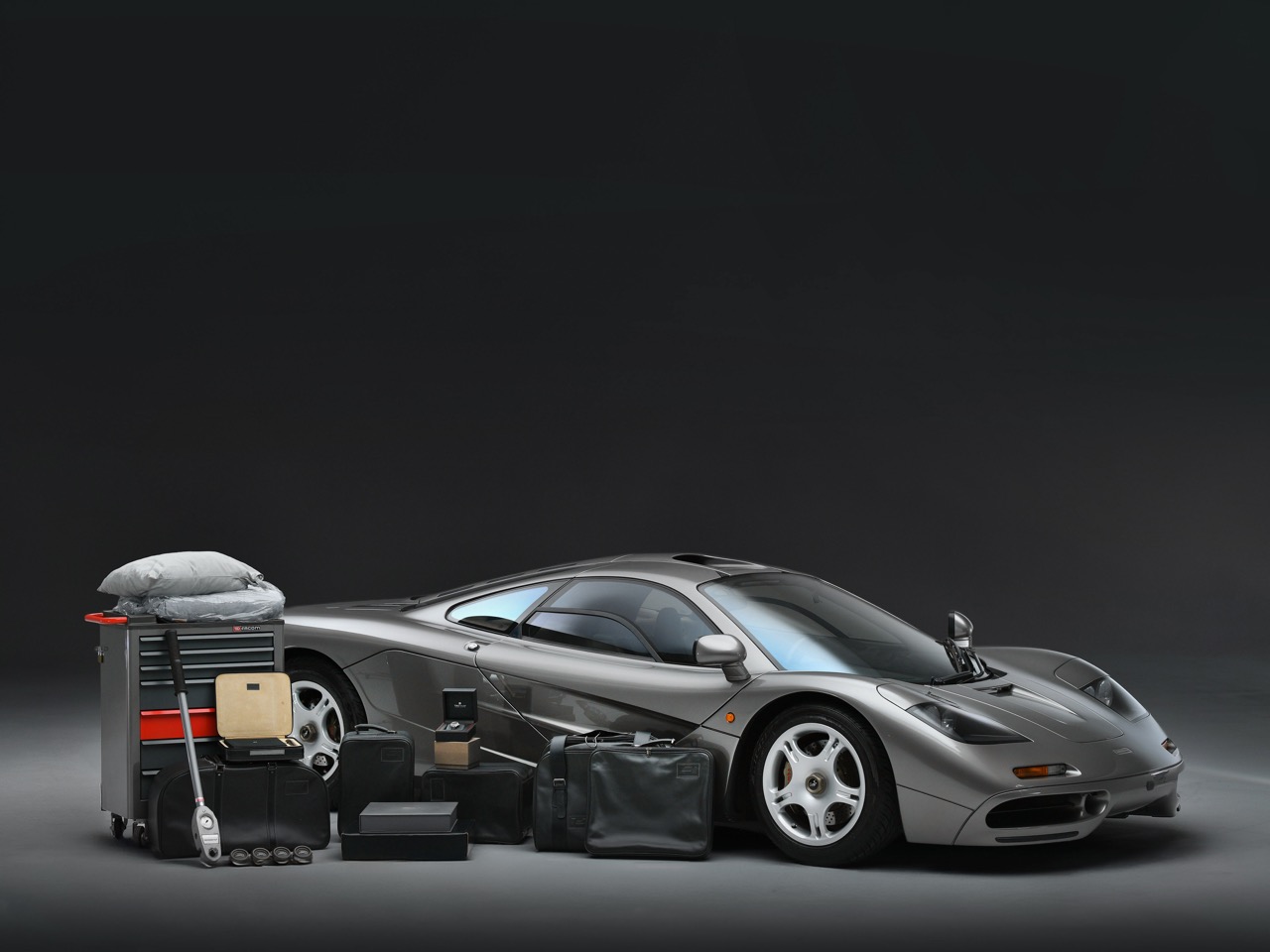
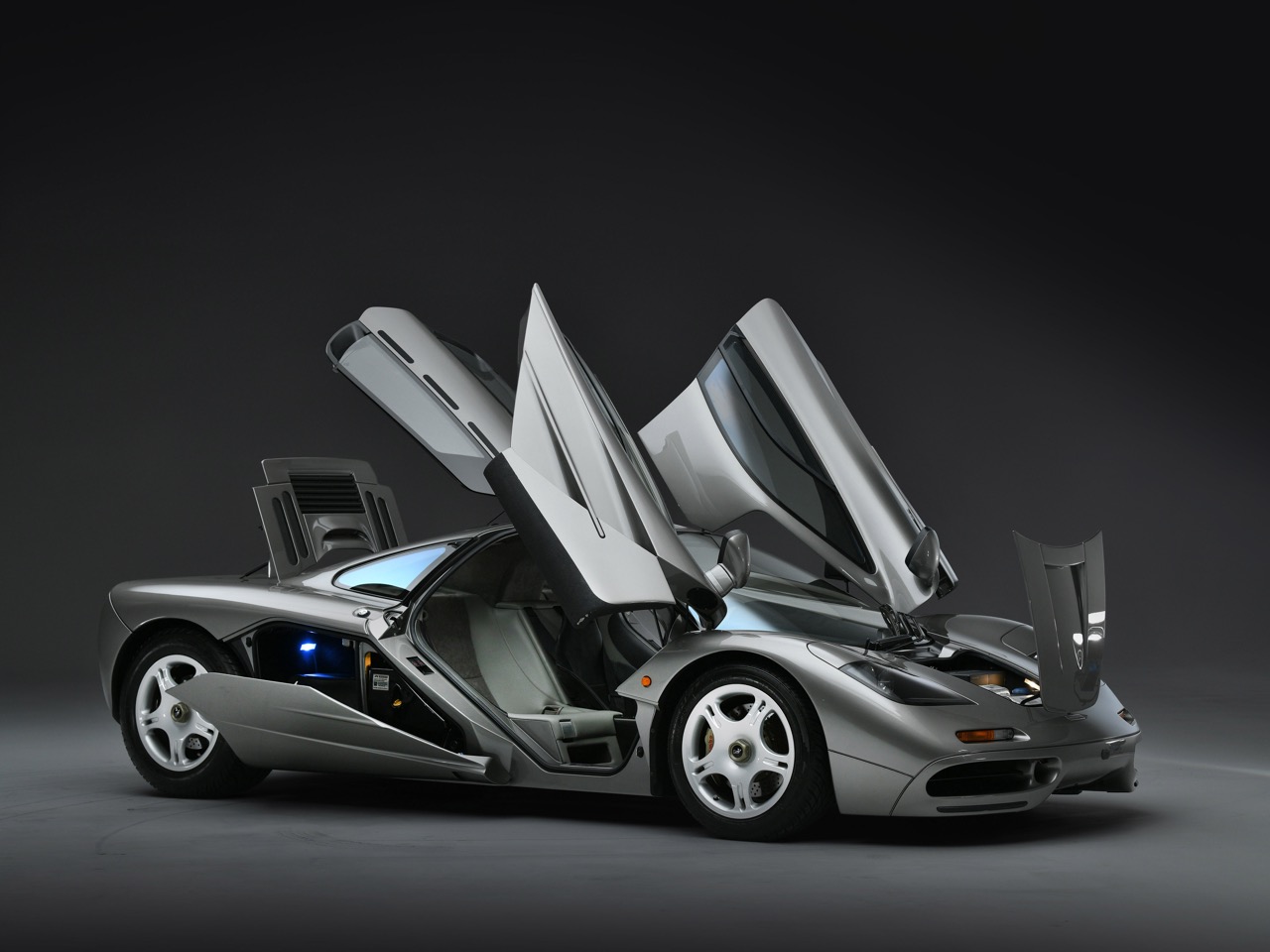
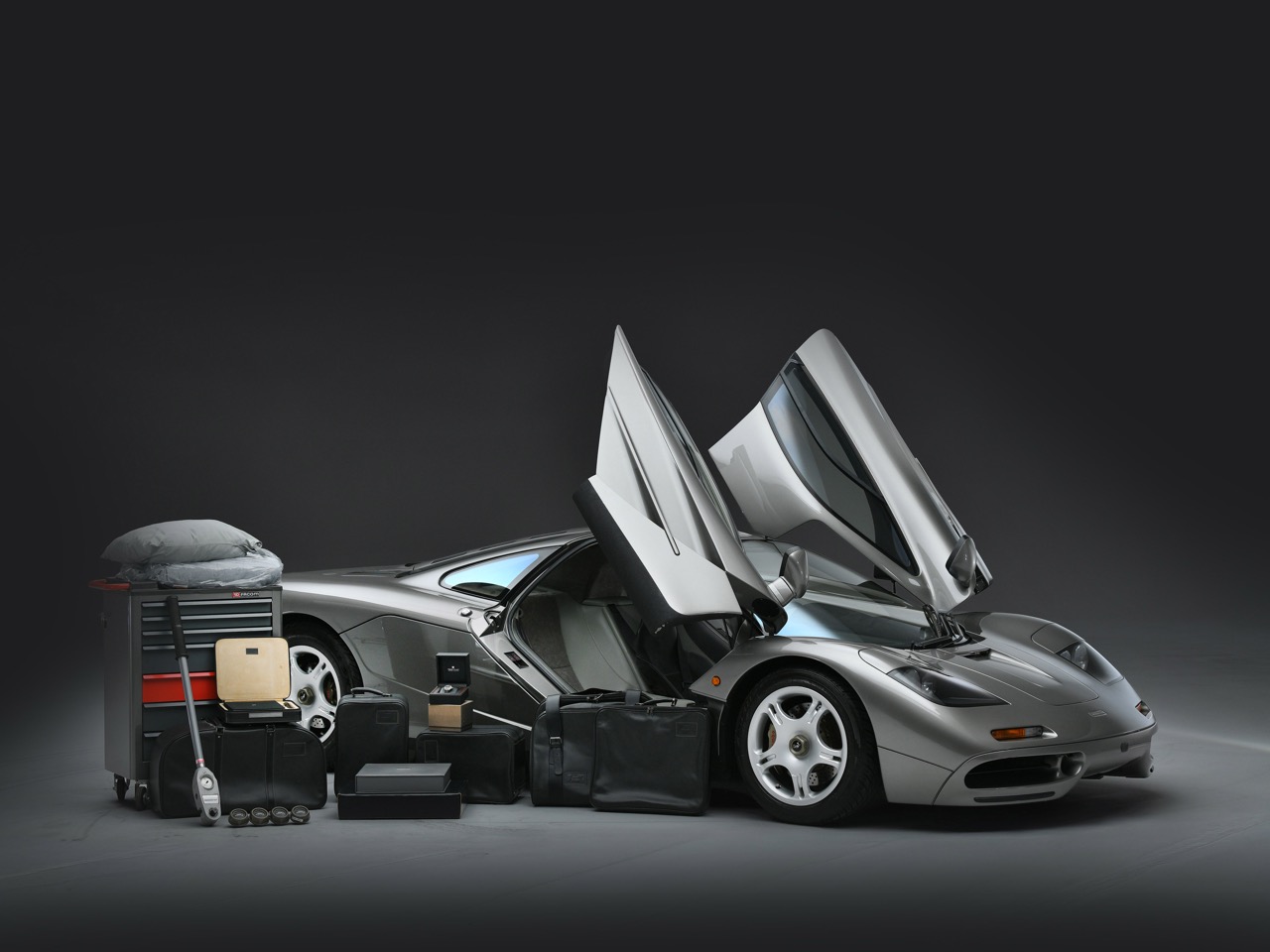
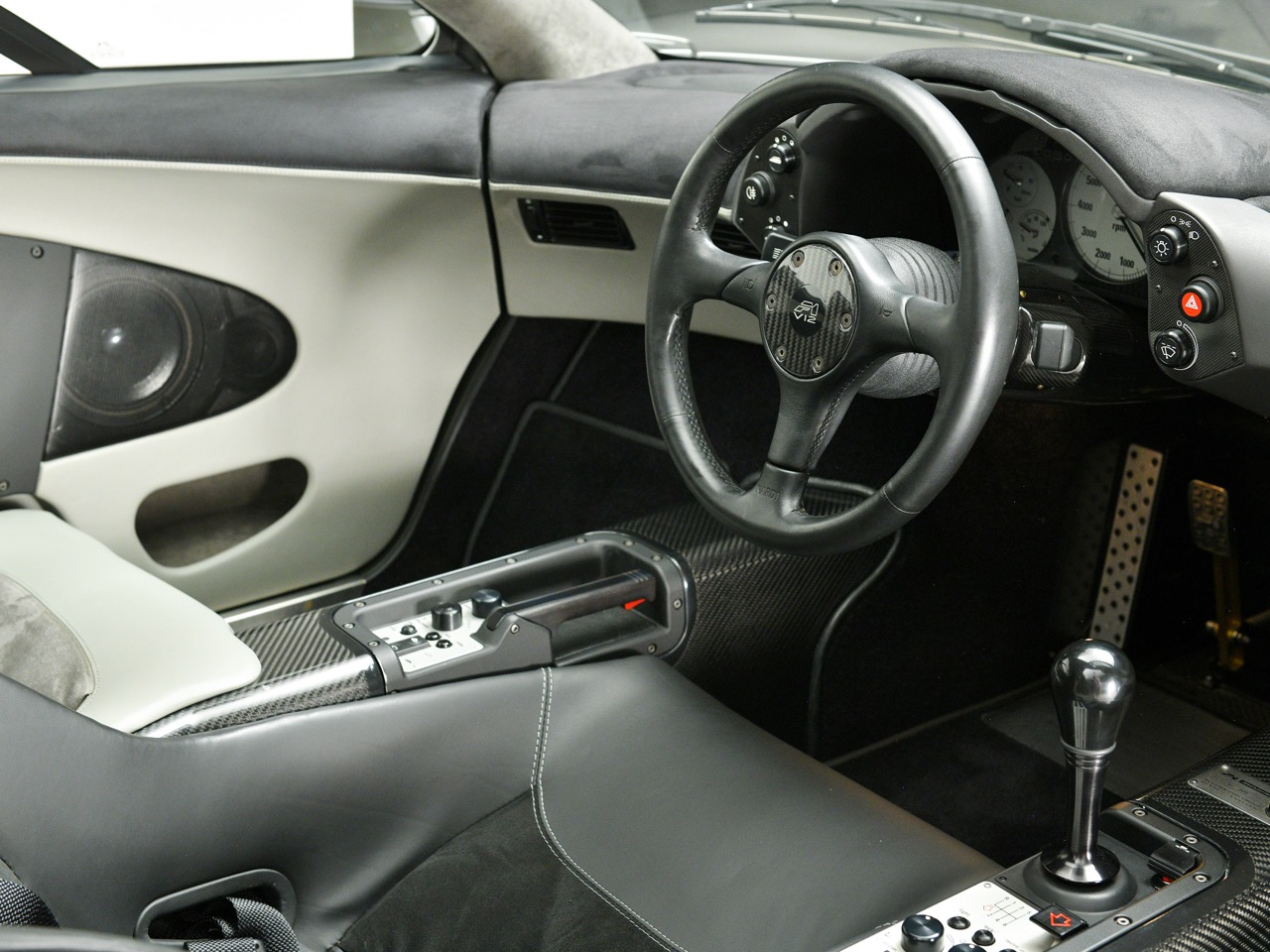
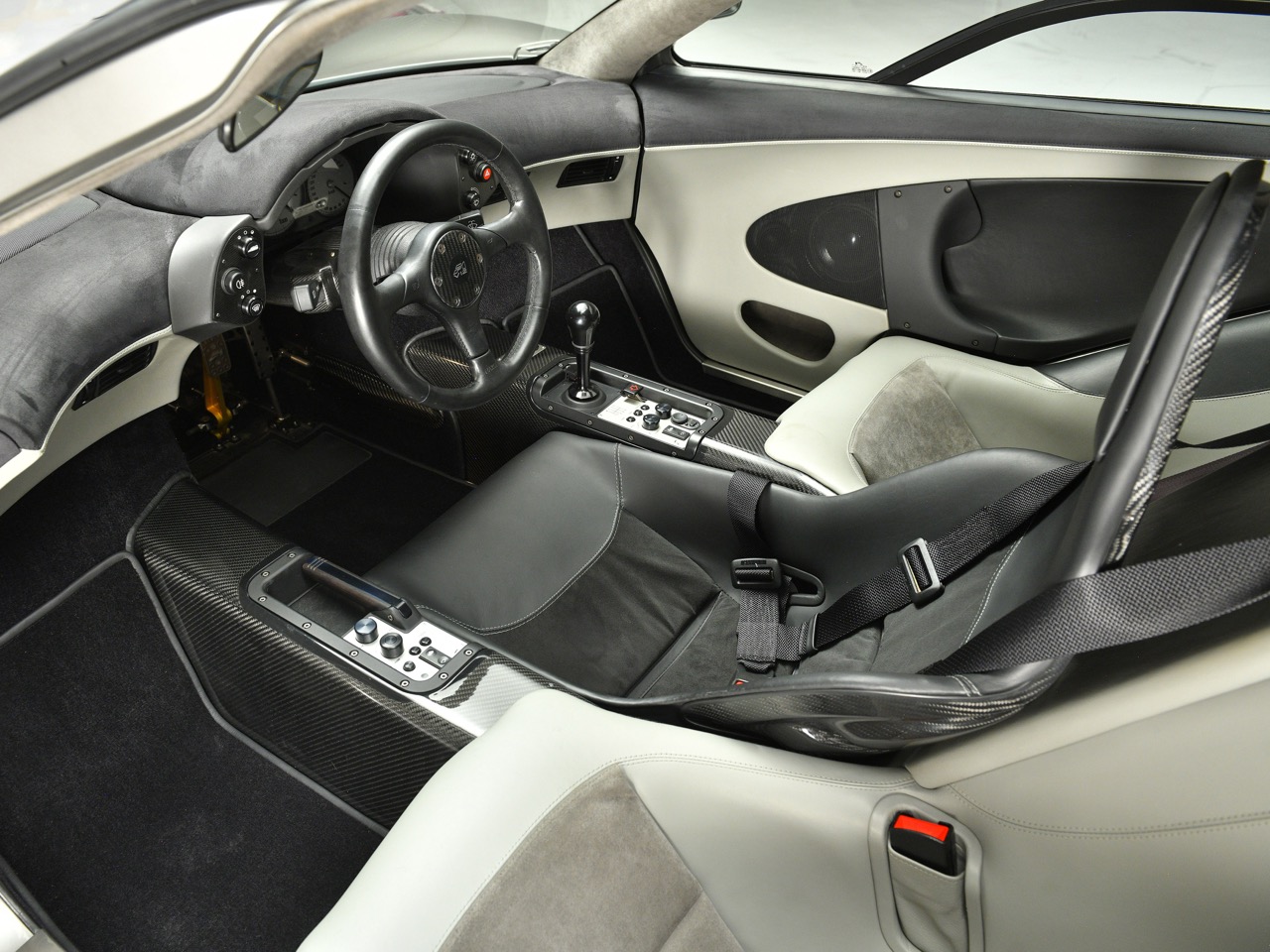
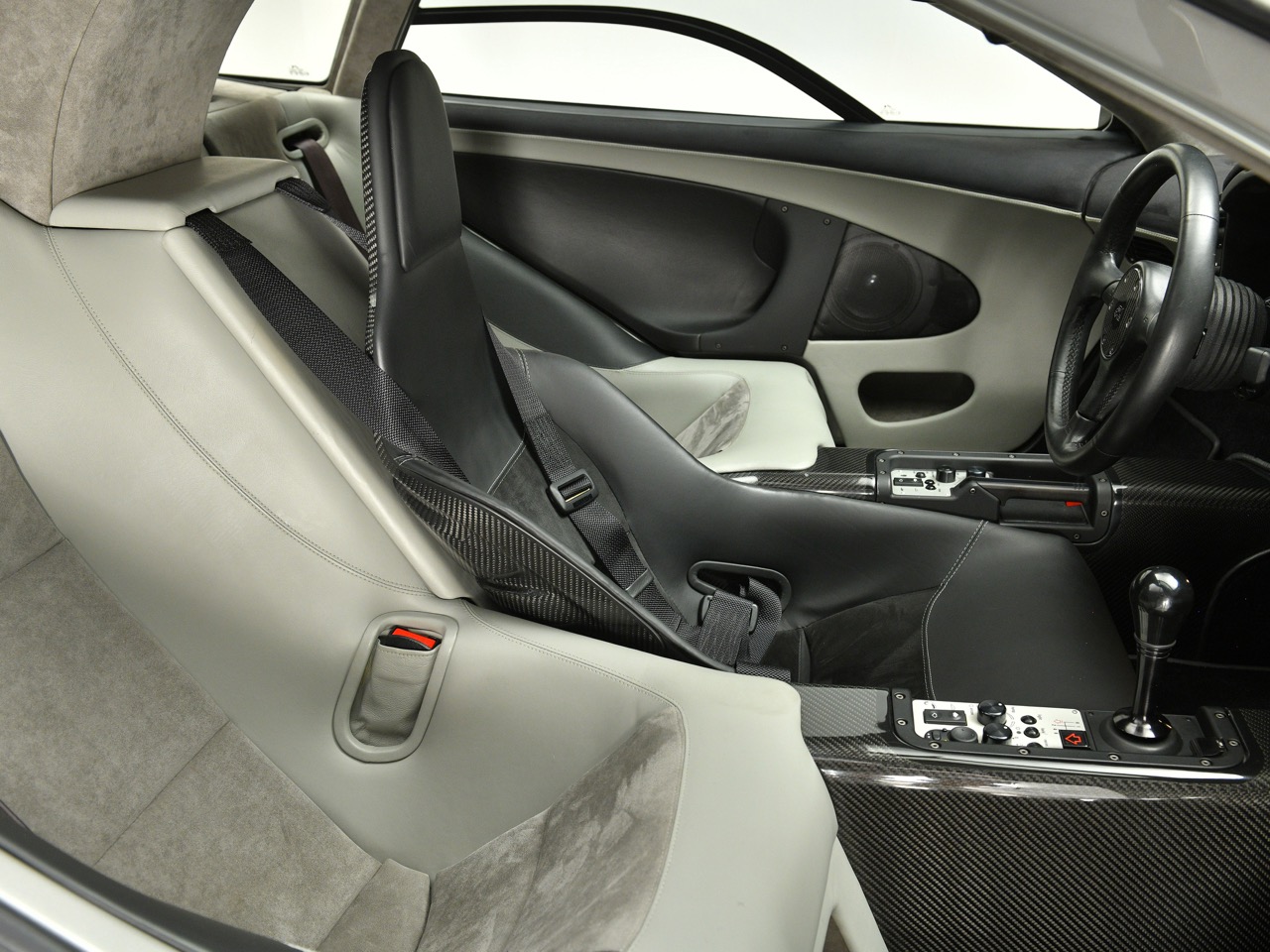
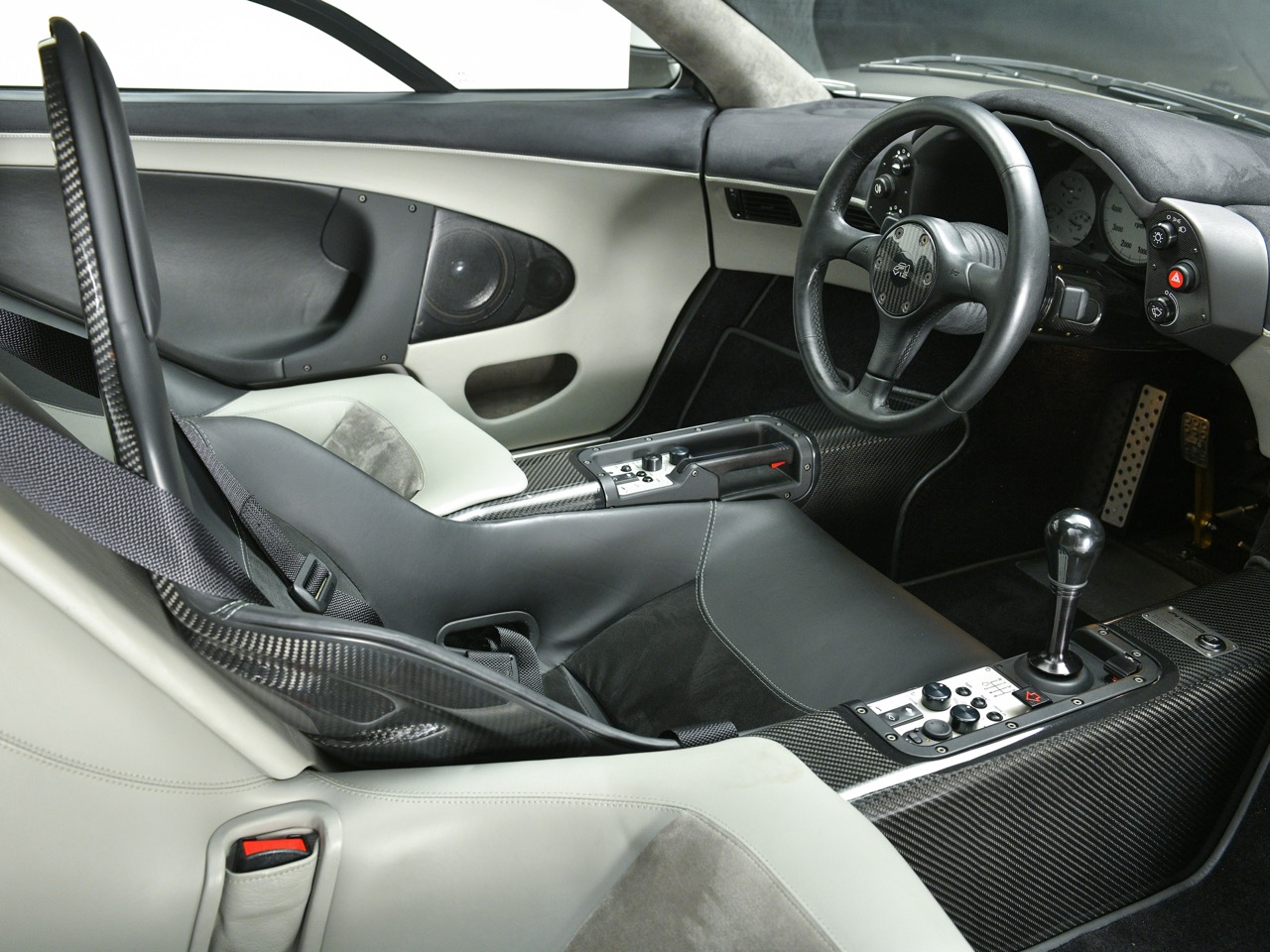
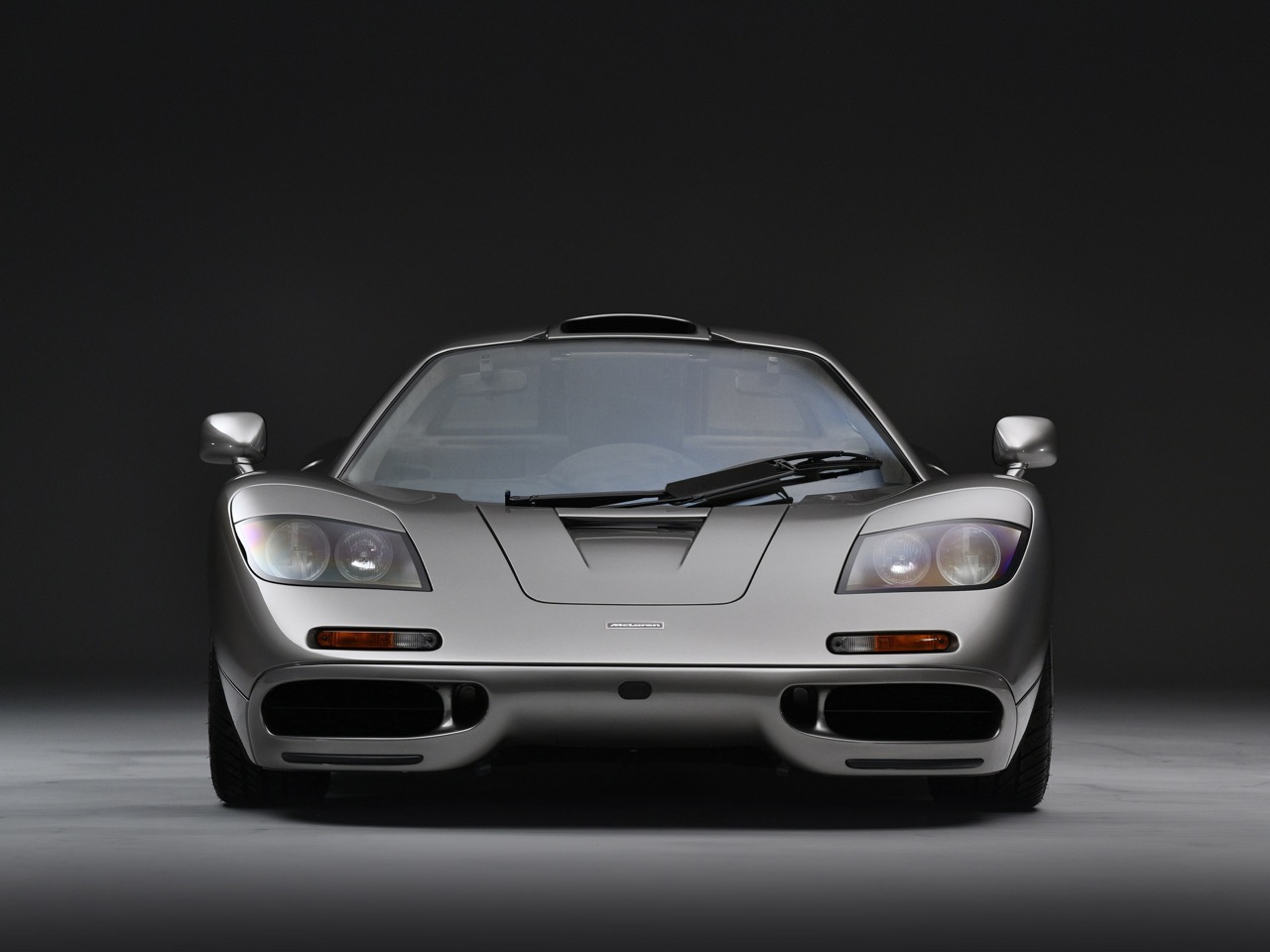
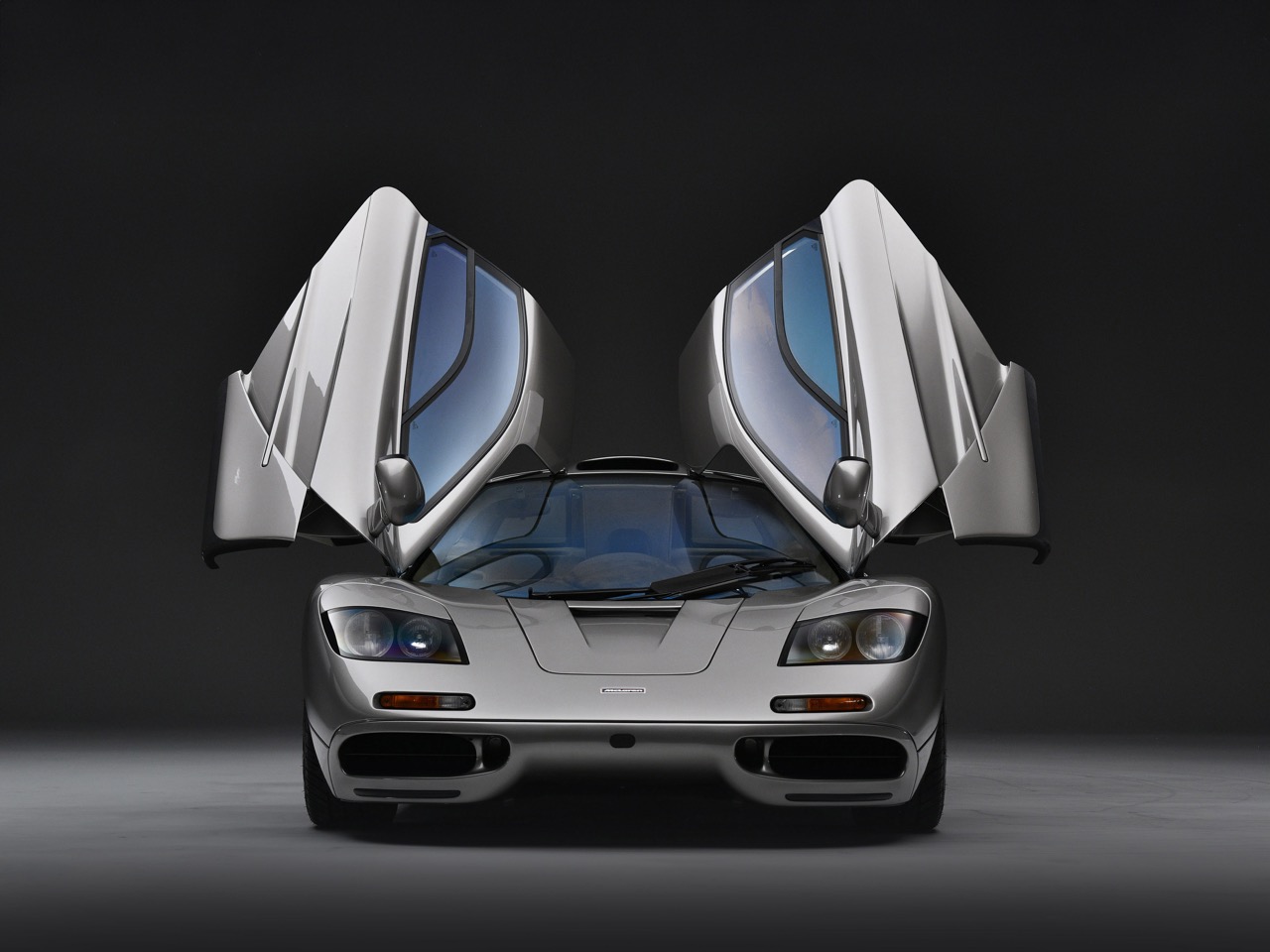
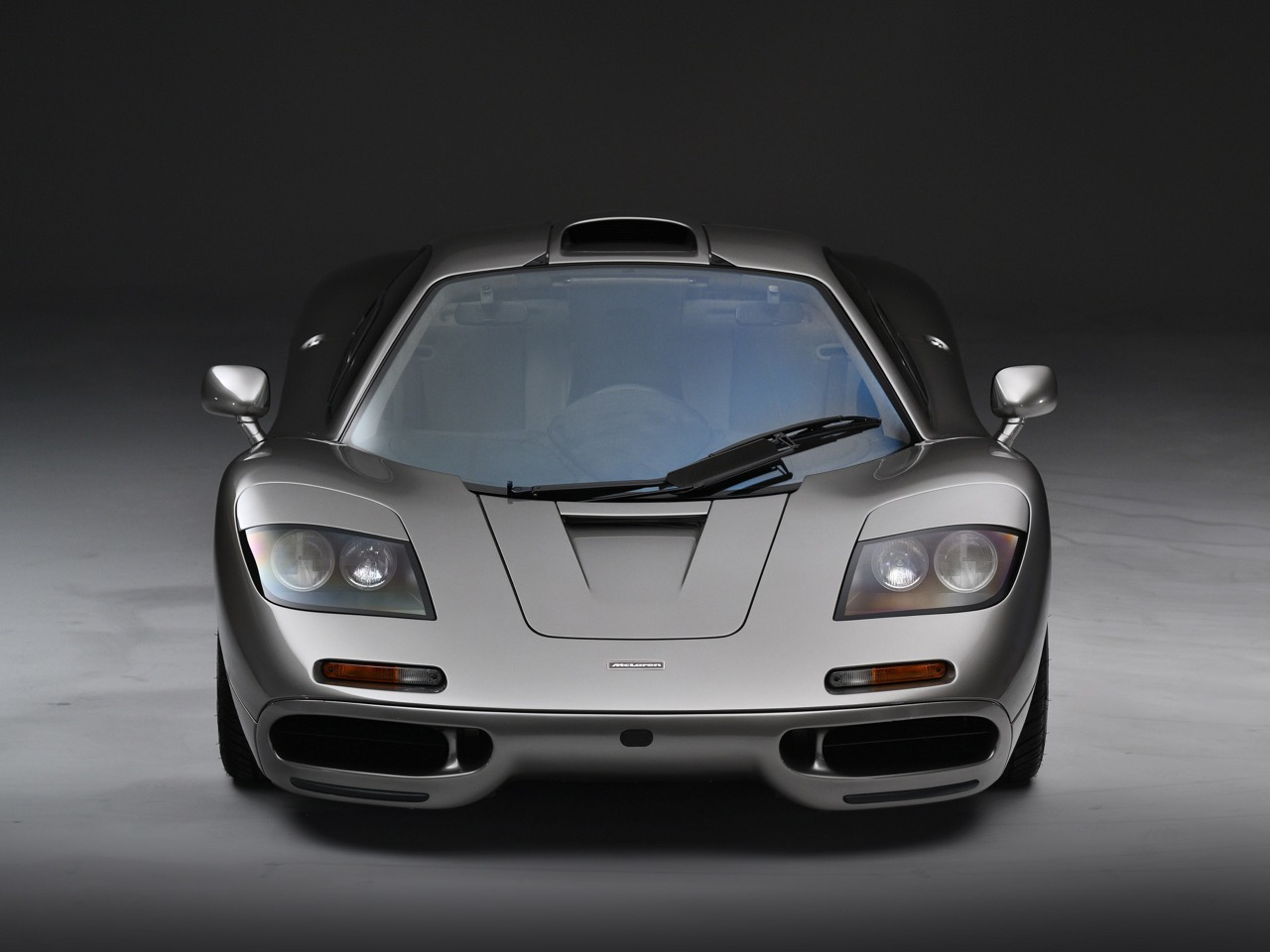
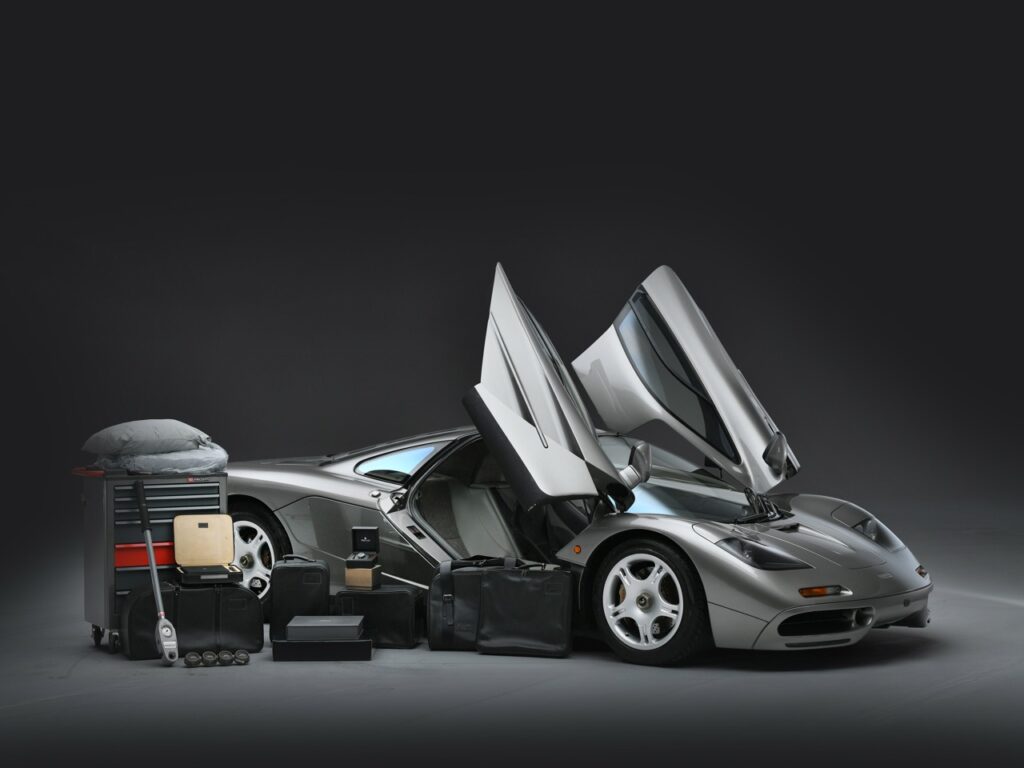
McLaren F1 for Sale
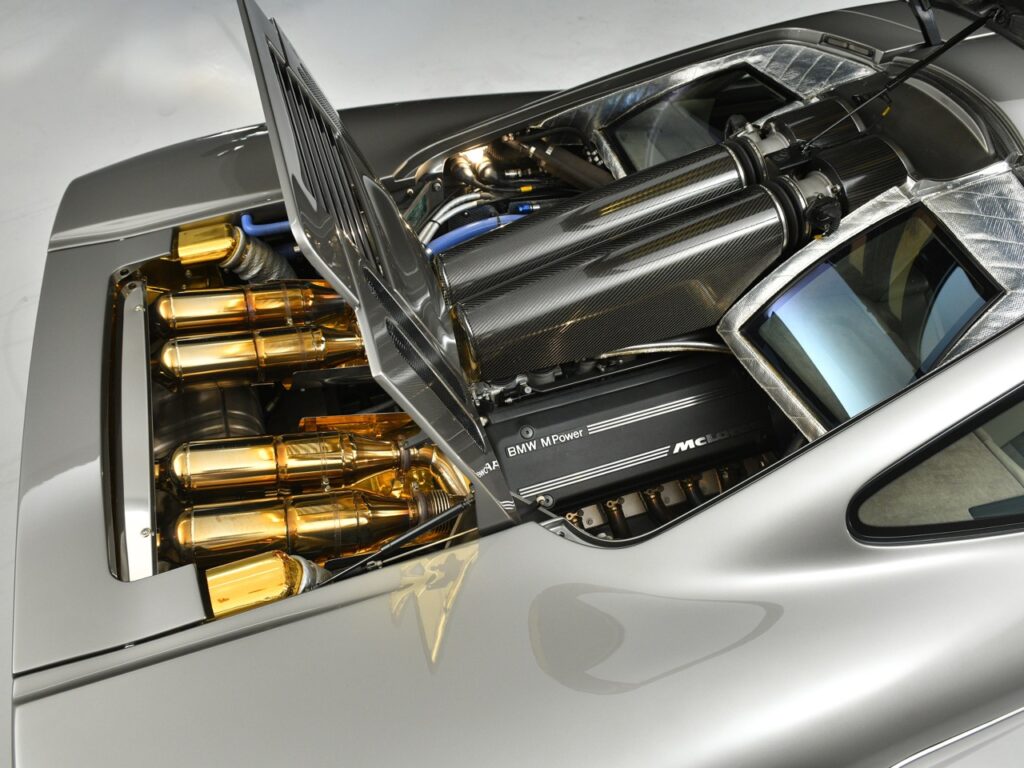
McLaren F1 for sale
Among all modern classics, the 1994 McLaren F1 stands alone. One of only 64 road-legal examples ever built, chassis no. 009 was the eighth car produced and the only unit delivered new to Australia. Finished in Dark Silver over Light Grey and Black, it shows just 10,522 miles and remains in exceptional condition, freshly serviced by McLaren Special Operations.
At launch, the F1 carried a factory price of around £540,000, equivalent to roughly USD 850,000 in the mid-1990s. Three decades later, its market value exceeds USD 20 million to 25 million, depending on originality and provenance. This example, offered Price on Request, sits within that elite range and represents one of the most significant private opportunities of 2025.
Power comes from a 6.1-litre BMW-sourced V12 producing 627 hp, propelling the car from 0-100 km/h in 3.2 seconds and on to a record-breaking 386 km/h (240 mph) — figures that kept the F1 the world’s fastest production car for over a decade. The entire structure is a carbon-fibre monocoque, clothed in a lightweight body designed by Peter Stevens and meticulously assembled in Woking, England.
This particular McLaren F1 is presented for sale by Tom Hartley Jnr, a British dealership renowned for handling landmark collector cars, and is accompanied by its full original accessories: luggage set, tool roll, Facom tool chest, owner’s handbook, and a limited-edition copy of Driving Ambition.
Discretion remains paramount. Through LUSSO, collectors gain confidential access to verified vehicles such as this — sourced, documented, and transacted under strict NDA and escrow procedures, with international logistics handled end-to-end.
1994 McLaren F1 for sale
This 1994 McLaren F1, chassis no. 009, represents one of the most historically significant examples of the model ever offered for sale. It was the eighth car built and remains the only F1 originally delivered to Australia, later returning to the United Kingdom where it currently resides.
Finished in Dark Silver over Light Grey with Black accents, the car displays just 10,522 miles from new and presents in outstanding original condition. It has benefited from a major service conducted by McLaren Special Operations (MSO), ensuring full mechanical integrity and continued eligibility for global concours events.
Every element of this example underlines its authenticity: the original luggage set, leather-cased owner’s handbook, Facom tool chest, and tool roll all accompany the car, along with a leather-bound limited-edition copy of “Driving Ambition”, the definitive McLaren F1 reference book.
This remarkable car is currently offered for sale by Tom Hartley Jnr, a renowned British dealership specializing in the world’s most sought-after collector automobiles. Price is available upon request.
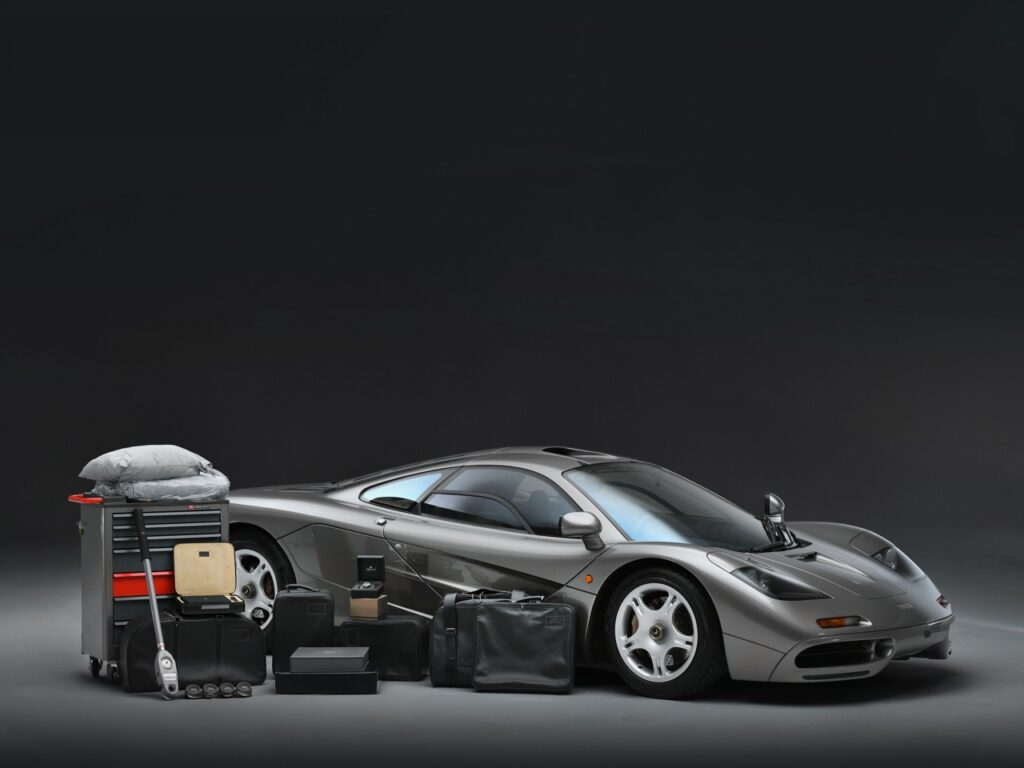
McLaren F1 FOR SALE: Design and Interior
The McLaren F1 remains one of the most exquisitely engineered road cars ever created — a masterclass in lightweight construction and aerodynamic purity. Its Dark Silver bodywork, sculpted entirely from carbon-fibre composite, reflects Gordon Murray’s obsession with balance and airflow. Every surface serves a purpose: the low-slung nose reduces drag, the roof scoop feeds the V12, and the rear diffuser stabilizes the car at high speed without resorting to oversized wings.
Inside, the cabin is a study in precision and restraint. The three-seat layout, with the driver positioned centrally ahead of two passengers, creates symmetry unmatched by any other road car. The interior is trimmed in Light Grey leather with Black detailing, fitted entirely by hand to aerospace tolerances. Every component — from the titanium pedals to the gold-plated engine bay insulation — was engineered exclusively for the F1, blending performance with elegance.
Each F1 was bespoke, reflecting its first owner’s individual taste. This example’s subtle specification and immaculate presentation make it one of the most balanced and desirable configurations ever delivered.
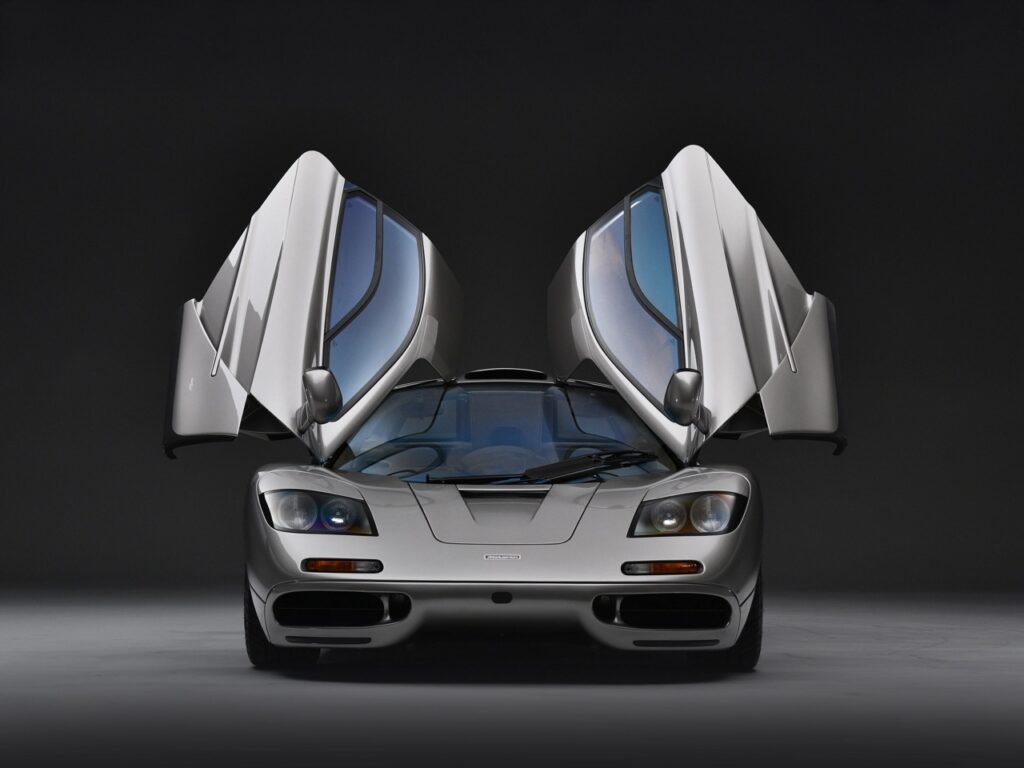
McLaren F1 FOR SALE: Performance
At its debut in 1992, the McLaren F1 instantly rewrote the definition of a road car. Its performance figures, achieved without forced induction or electronic assistance, were nothing short of revolutionary. Powered by a bespoke 6.1-litre BMW S70/2 V12, developed by Paul Rosche at BMW Motorsport, the F1 produced 627 horsepower and 650 Nm of torque — all naturally aspirated.
With a dry weight of just 1,138 kg, thanks to its carbon-fibre monocoque chassis (the first ever used in a production car), the F1 achieved an astonishing power-to-weight ratio of 550 hp per tonne. This gave it superlative acceleration for its era: 0–100 km/h in 3.2 seconds, 0–200 km/h in 9.4 seconds, and 0–300 km/h in just 21.8 seconds.
In March 1998, at the Ehra-Lessien test track in Germany, a prototype F1 reached 386.4 km/h (240.1 mph) — officially certified as the world’s fastest production car, a title it held for more than a decade until the arrival of the Bugatti Veyron. Even more impressively, the record was achieved without any aerodynamic modifications or turbocharging.
The engine’s responsiveness, combined with a six-speed manual gearbox, provided a level of driver engagement unmatched by later hypercars. Critics at the time described it as “the closest experience to piloting a Formula 1 car on public roads.”
Three decades later, the McLaren F1’s performance remains legendary — not just for its numbers, but for the purity of how they were achieved: one man, three pedals, twelve cylinders, and no electronic safety nets.
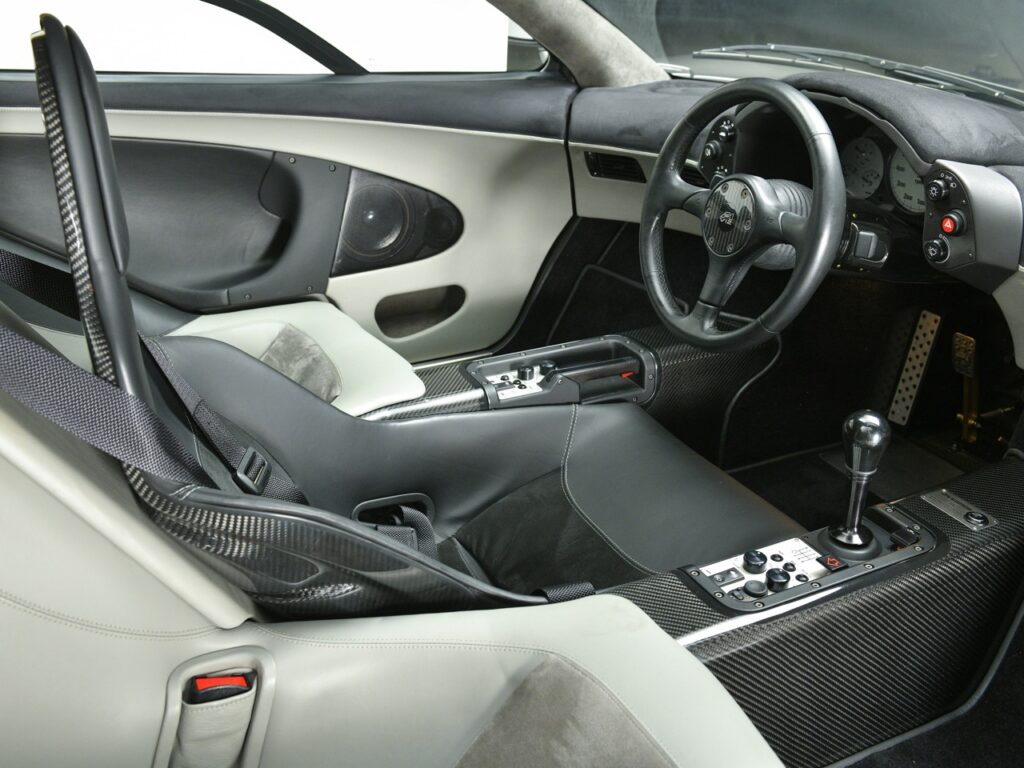
McLaren F1 FOR SALE: Rarity and Investment Value
The McLaren F1 is one of the rarest and most historically important production cars ever built — a genuine milestone in automotive engineering and collectibility. Between 1992 and 1998, McLaren produced a total of 106 units, including road and race variants. Each was hand-built at the McLaren Technology Centre in Woking, England, using techniques derived directly from Formula 1.
How many McLaren F1 were made?
Of those 106 cars, just 64 were road-legal F1s, while the remaining units were specialized evolutions:
- 5 F1 LMs, built to commemorate McLaren’s 1995 Le Mans victory.
- 3 F1 GTs, featuring extended bodywork for homologation.
- 28 GTR, adapted for endurance competition.
Each car was constructed over approximately 3,000 hours, with a dedicated team of engineers ensuring every detail — from the carbon weave to the titanium fasteners — met aerospace standards. No two F1s are identical; each reflects the bespoke specifications of its original owner.
When new, the McLaren F1 was priced at £540,000 (around USD 850,000 in the mid-1990s), making it the most expensive production car of its time. Yet even at that price, McLaren reportedly sold each at a loss due to its unprecedented engineering costs.
By 2015, prices had exceeded USD 10 million, and by 2023, prime examples traded privately above USD 20 million. In 2025, the most original, low-mileage cars command between USD 22 million and 28 million, depending on provenance and service history.
Beyond its rarity, the F1’s enduring appeal lies in its purity — the last naturally aspirated car to hold the world speed record and the first to apply F1-grade materials to a road chassis. As hypercars evolve toward hybridization, the McLaren F1 remains the benchmark of the analog era, coveted by collectors as an investment-grade masterpiece whose desirability transcends generations.
For those seeking a verified McLaren F1 for sale, LUSSO provides confidential access to off-market opportunities through its international broker network — connecting discerning buyers with authentic, traceable examples unavailable in the public domain.
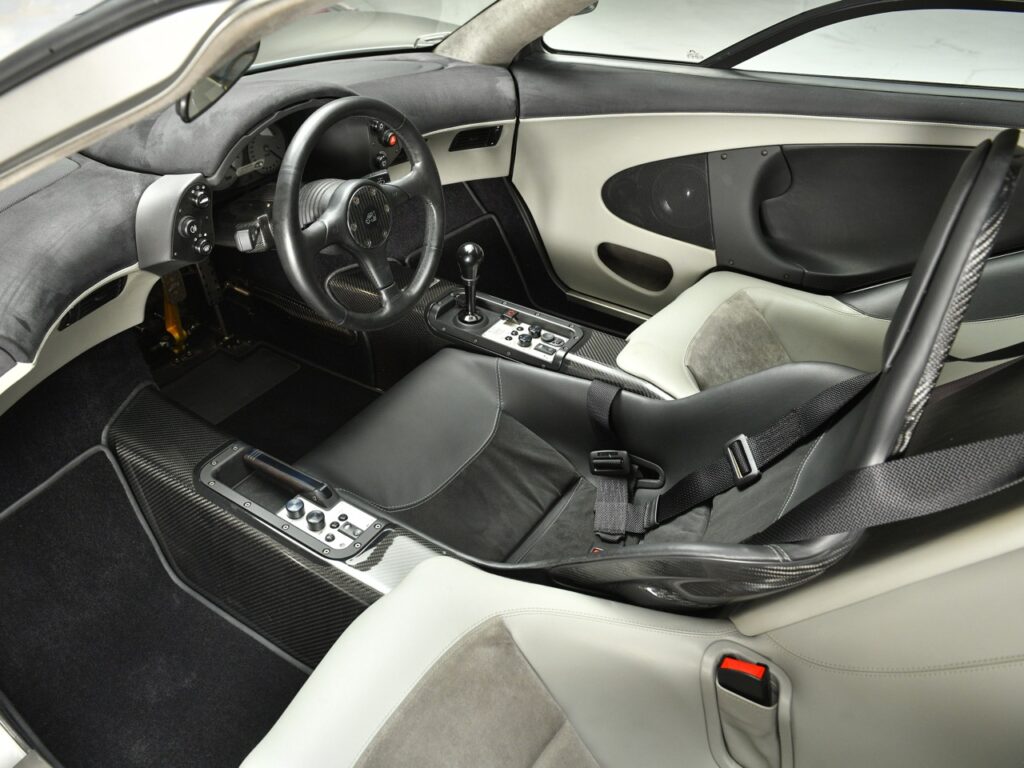
McLaren F1: Full Technical Spec
A cornerstone in automotive history, the McLaren F1 was the first production car to combine a full carbon-fibre monocoque, a naturally aspirated V12, and a central driving position — a configuration that remains unmatched even three decades later. Below is the complete technical specification sheet of the model, meticulously detailed for collectors and purists.
Identification & Production
• Brand: McLaren Automotive
• Model: F1
• Class: Sports Car / Hypercar
• Body Style: 3-seat coupé
• Production Years: 1993 – 1998
• Total Units Built: 106 (all variants)
• Road Cars: 64
• Factory Location: Woking, Surrey, England
• Assembly Method: Hand-built, 3,000 hours per car
• Design Director: Gordon Murray
• Exterior Designer: Peter Stevens
• Segment: Ultra-limited collector’s vehicle
Engine & Output
• Energy Type: Petrol
• Engine Layout: V12, naturally aspirated
• Manufacturer: BMW Motorsport (S70/2 engine)
• Displacement: 6,064 cm³ (6.1 litres)
• Configuration: 60° V12, 48 valves (2 × 2 DOHC)
• Bore x Stroke: 86 mm × 87 mm
• Compression Ratio: 11.0:1
• Max Power: 627 hp (461 kW) @ 7,400 rpm
• Max Torque: 651 Nm (480 lb-ft) @ 5,600 rpm
• Rev Limit: 7,500 rpm
• Induction: Naturally aspirated – individual throttle bodies
• Fuel System: Sequential multipoint electronic injection
• Cooling System: Dual side radiators with rear-mounted oil cooler
• Lubrication: Dry sump
• Engine Block Material: Aluminium alloy
• Cylinder Head Material: Aluminium alloy
• Special Feature: Gold foil engine bay insulation for heat reflection
• Exhaust: Stainless steel system with titanium silencers
• Emission Control: Catalytic converters (removable for track use)
Transmission
• Drivetrain: Rear-wheel drive (RWD)
• Gearbox: 6-speed manual
• Clutch Type: Triple-plate carbon clutch
• Differential: Mechanical limited-slip
• Gear Ratios: Close-ratio configuration, optimized for high-speed stability
• Final Drive Ratio: 3.23:1
• Steering: Manual rack-and-pinion, unassisted
• Driving Modes: N/A (analog setup – driver only)
Weight & Performance
• Curb Weight: 1,140 kg (2,513 lb)
• Dry Weight: Approx. 1,080 kg
• Weight Distribution: 42% front / 58% rear
• Power-to-Weight Ratio: 550 hp per tonne
• 0–100 km/h (0–62 mph): 3.2 s
• 0–200 km/h: 9.4 s
• 0–300 km/h: 21.8 s
• Quarter Mile: 11.1 s @ 216 km/h (134 mph)
• Top Speed (production car): 386.4 km/h (240.1 mph)
• Top Speed (prototype run, unrestricted): 391 km/h (243 mph)
• Braking 100–0 km/h: 31.5 m
• Combined Fuel Consumption: 12.4 L/100 km
• Fuel Economy (mixed driving): 8.1 km/L (19 mpg US)
• CO₂ Emissions: 475 g/km (estimated)
Chassis, Suspension & Aerodynamics
• Chassis Type: Carbon-fibre monocoque
• Subframes: Aluminium and magnesium
• Front Suspension: Double wishbone – coil-over dampers
• Rear Suspension: Double wishbone – coil-over dampers
• Anti-Roll Bars: Front and rear, hollow tubular type
• Dampers: Koni adjustable racing dampers
• Steering System: Manual, 2.8 turns lock-to-lock
• Brakes: Vented and cross-drilled steel discs (no ABS)
• Front: 332 mm – 4-piston aluminium calipers
• Rear: 305 mm – 4-piston aluminium calipers
• Aerodynamics: Flat underbody, rear diffuser, roof intake, adjustable flaps
• Drag Coefficient (Cd): 0.32
• Downforce at 240 mph: Approx. 300 kg
• Notable Absence: No power steering, no ABS, no traction control – pure mechanical feedback
Dimensions & Capacities
• Length: 4,287 mm
• Width (excl. mirrors): 1,820 mm
• Height: 1,142 mm
• Wheelbase: 2,718 mm
• Front Track: 1,568 mm
• Rear Track: 1,472 mm
• Ground Clearance: 120 mm (adjustable via suspension shims)
• Turning Circle: 13.0 m
• Boot Volume: 228 litres (side compartments and rear storage combined)
• Fuel Tank Capacity: 90 L (24 US gal)
• Kerb-to-Kerb Turning Radius: 6.5 m (each side)
• Seating Layout: Central driver + two passenger seats offset rearward
• Doors: Dihedral (butterfly opening)
Wheels & Tires
• Wheel Material: Forged magnesium, centre-lock hubs
• Front Wheels: 17-inch (9.0J × 17)
• Rear Wheels: 17-inch (11.5J × 17)
• Tires: Michelin Pilot SX MXX3 – bespoke development for McLaren
• Front: 235/45 ZR17
• Rear: 315/45 ZR17
• Tire Pressure Monitoring: Manual, pre-drive check (no TPMS)
• Spare Wheel: None – tire sealant kit supplied
• Recommended Tire Replacement: Every 5 years or 15,000 km
Interior Technology & Features
• Driver Layout: Central driving position, flanked by two passenger seats
• Instrumentation: Analog tachometer (10,000 rpm), digital speed display
• Telemetry: Integrated on-board diagnostics with laptop interface
• Infotainment: Pioneer CD stereo (bespoke fitment)
• Air Conditioning: Standard, lightweight system
• Windows: Electric, lightweight glass
• Materials: Full leather interior with Alcantara accents
• Trim: Machined aluminium switchgear
• Steering Wheel: Detachable, padded suede finish
• Sound Insulation: Minimal, tuned for driver feedback
• Upholstery: Light Grey leather with Black detailing (this example)
• Storage Compartments: Dual side luggage bays + small central compartment
Safety & Security
• Chassis Safety: Carbon-fibre monocoque with honeycomb core
• Crash Protection: Energy-absorbing front and rear substructures
• Braking System: Hydraulic dual-circuit without ABS
• Seatbelts: 3-point inertia reel (optional 4-point harness)
• Airbags: None (weight reduction philosophy)
• Security System: Immobilizer and alarm (period-correct upgrade)
• Fire Extinguisher: Fitted behind driver’s seat
• Driver Aids: None – analog control, no ESP, no traction assist
Maintenance & Warranty
• Service Interval: Every 12 months or 5,000 miles (8,000 km)
• Major Service: Recommended every 5 years, performed by McLaren Special Operations
• Service Cost (annual): Approx. USD 35,000–45,000
• Clutch Replacement: USD 20,000–25,000
• Tire Replacement: USD 10,000 per set (bespoke compound)
• Brake Overhaul: USD 12,000
• Factory Warranty (original): 2 years / unlimited mileage (expired)
• Extended Warranty: Available through McLaren Heritage Program
• Preservation Service: Offered by MSO Heritage division
• Special Tools Included: Facom garage tool chest, titanium tool roll, torque wrenches
• Included Accessories: Custom luggage set, owner’s handbook, Driving Ambition book
Historical Records & Achievements
• World Speed Record (Production Car): 386.4 km/h – set in 1998 at Ehra-Lessien
• Le Mans Victory: 1995 – McLaren F1 GTR won overall (first entry)
• Innovation Milestone: First carbon monocoque road car, first gold-lined engine bay
• Design Awards: Autocar “Car of the Century,” EVO “Greatest Supercar Ever Built”
• Cultural Legacy: Considered the purest analog hypercar, valued for mechanical purity
The McLaren F1 stands as the benchmark by which all modern hypercars are measured. Its combination of engineering genius, driver purity, and technical authenticity has never been equaled. For collectors and investors seeking a verified McLaren F1 for sale, LUSSO offers privileged access to confidential, off-market examples sourced directly through its elite broker network — a level of access that remains beyond the reach of conventional dealerships.
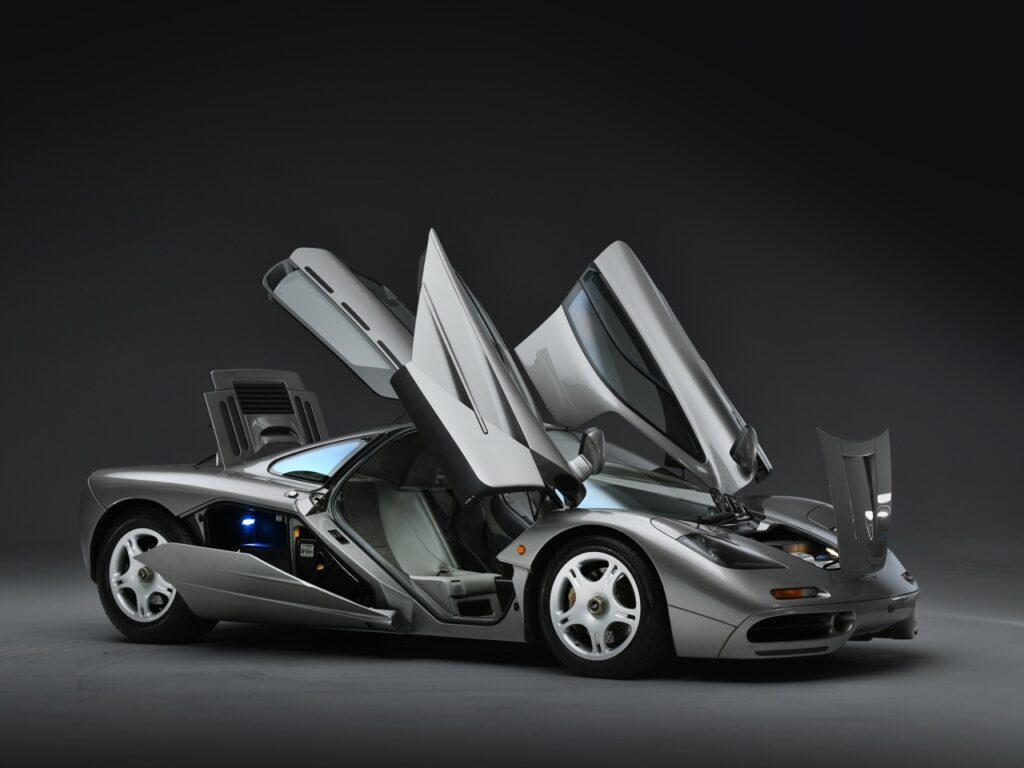
McLaren F1 FOR SALE: LUXURY CAR BROKER
LUSSO acts as a global orchestrator, not a dealer. Through a curated network of over 60 luxury car brokers and more than 5,000 verified collectors and sellers worldwide, LUSSO offers privileged access to off-market F1s, confidential consignments, and even factory-managed heritage cars unavailable through traditional showrooms. This reach ensures buyers enter negotiations with confidence — knowing provenance, condition, and authenticity have been meticulously verified.
From initial sourcing to international delivery, LUSSO manages the process under strict confidentiality: NDA-backed communication, escrow-secured transactions, legal and tax compliance, and specialized logistics for high-value vehicles. Every step is handled by professionals experienced in the discreet management of multimillion-dollar automotive assets.
Take the next step
📩 Submit Your Private Sourcing Request
🎯 Acquire a McLaren F1 through LUSSO’s Network
🚗 Sell Your McLaren via Our Global Broker Network
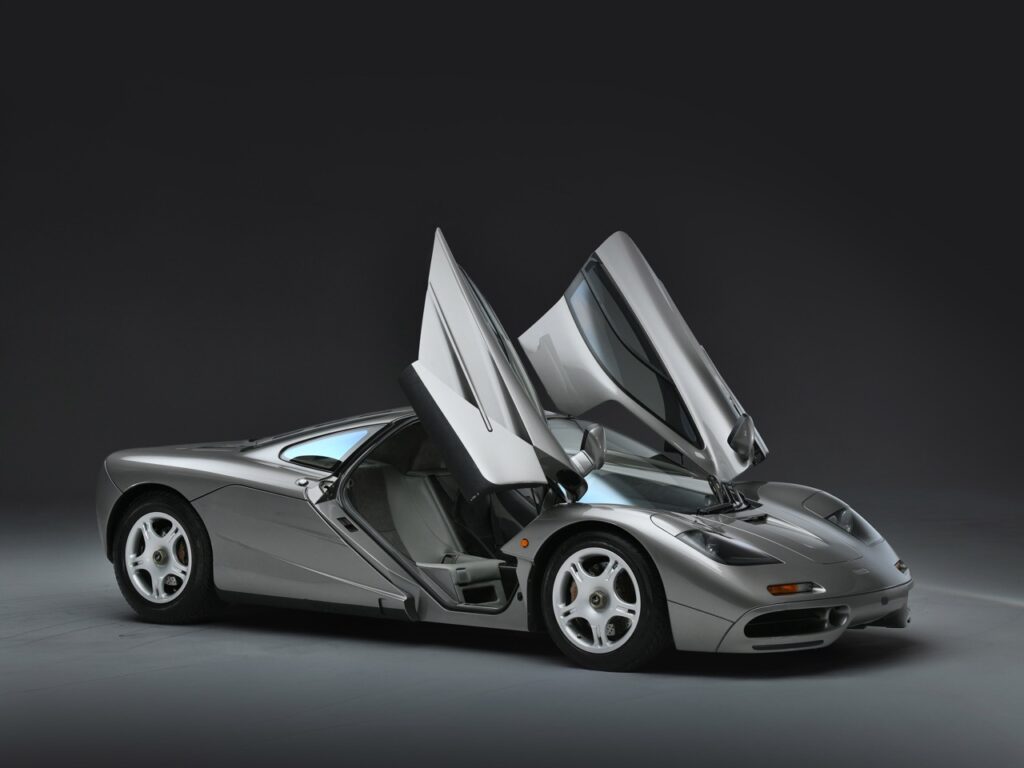

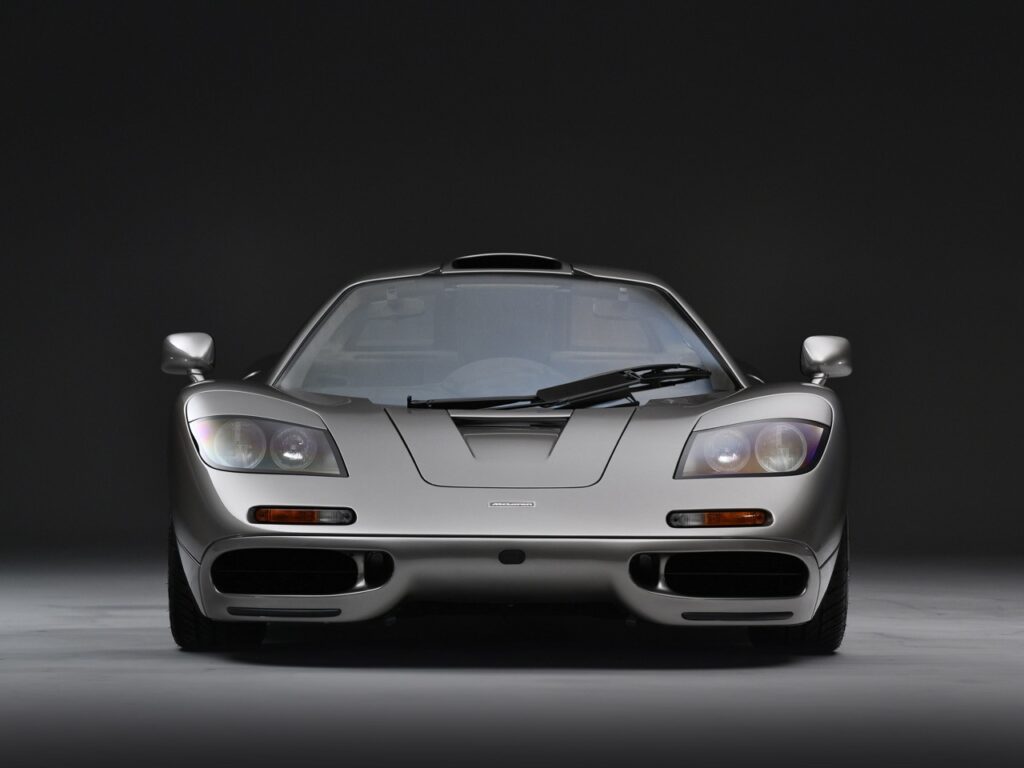
Photo Credits: © TOM HARTLEY JNR
